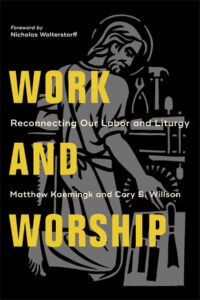 When we tell the origin story of Hearts & Minds, a story you are a part of as a customer and reader of BookNotes, we always explain that part of our vision for creating a somewhat unusual bookstore in the fall of 1982 was to arrange the store unlike most religious bookstores, with categories of books for ordinary folks to help them relate their faith to their various callings and careers. (Of course we have lots of more customary fare as well, books on prayer and Bible commentaries, books which focus on the family and titles about church life and personal growth, a huge children’s book section and lots of novels and poetry. Of course!) This Labor Day we consider, once again, how God has been good to us, blessing the feeble works of our hands, but we also note that we have not found that this part of our vision, offering books about work-world integrity, is as appreciated as we thought it might be.
When we tell the origin story of Hearts & Minds, a story you are a part of as a customer and reader of BookNotes, we always explain that part of our vision for creating a somewhat unusual bookstore in the fall of 1982 was to arrange the store unlike most religious bookstores, with categories of books for ordinary folks to help them relate their faith to their various callings and careers. (Of course we have lots of more customary fare as well, books on prayer and Bible commentaries, books which focus on the family and titles about church life and personal growth, a huge children’s book section and lots of novels and poetry. Of course!) This Labor Day we consider, once again, how God has been good to us, blessing the feeble works of our hands, but we also note that we have not found that this part of our vision, offering books about work-world integrity, is as appreciated as we thought it might be.
Rather than being complemented for having interesting and wise, faith-based books for Christian farmers, nurses, teachers, engineers, counselors, businesspeople, artists, lawyers, computer scientists, politicians, and other careers and jobs, these sections of the store are routinely ignored. Film-makers and day-care operators and city planners and retail workers and special educators and dance instructors and business leaders just don’t come in very often to buy books on how to think faithfully about Christian approaches to their vocations in these, their spheres of service.
My hunch is, as I’ve lamented here before, that this discouraging fact may be in part because their pastors don’t talk much about the Christian mind, let alone “thinking Christianly” and reading and learning about our Christian convictions and practices in the day-by-day work-world. Rarely do churches preach about, or even pray for their “butchers, bakers, and candlestick makers.” We do not know many who have offered Christian education classes on marketplace mission and the like. Gratefully, we hear more and more these days about being missional and living out our faith in winsome ways in public life and we are exhorted to honor the Kingship of Christ over all zones of culture, but our job sites and workplaces are rarely held up as venues of creative missional discipleship or Christ-honoring fidelity. I wonder how many even heard anything about a robust faith-and-work connection on Labor Day Sunday? We’ve been told plenty of times by business people and artists and scientists and public school teachers and computer programers that they sometimes feel like “second class Christians” in their own faith communities for not doing “religious” work.
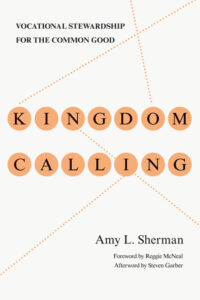 This has been changing in certain circles. I can hardly believe it was ten years ago that Amy Sherman coined the phrase “vocational stewardship” suggesting we are to steward our varying vocations for the common good, which she explored so thoroughly in Kingdom Calling. When we opened in the early 80s there were pockets of folks talking about this (kudos to Fortress Press who at the time had a series, now all out of print, by authors like Bethlehem Steel’s Lutheran William Diehl.) By the 2000s, this was such a movement that David Miller published with Oxford University Press a study about it all called God at Work: The History and Promise of the Faith at Work Movement. There are bunches of websites and organizations, now, helping folks relate faith and work and it gives us great courage to keep on here in Dallastown.
This has been changing in certain circles. I can hardly believe it was ten years ago that Amy Sherman coined the phrase “vocational stewardship” suggesting we are to steward our varying vocations for the common good, which she explored so thoroughly in Kingdom Calling. When we opened in the early 80s there were pockets of folks talking about this (kudos to Fortress Press who at the time had a series, now all out of print, by authors like Bethlehem Steel’s Lutheran William Diehl.) By the 2000s, this was such a movement that David Miller published with Oxford University Press a study about it all called God at Work: The History and Promise of the Faith at Work Movement. There are bunches of websites and organizations, now, helping folks relate faith and work and it gives us great courage to keep on here in Dallastown.
HERE is just one article (from Seattle Pacific University) that nicely documents some of the recent history.
HERE is just one conference (at Regent College in British Columbia) that, although over, is great to see, just as an example to see how such things are being discussed these days.
HERE is the website (of the Denver Institute for Faith and Work) of just one of many institutes doing this kind of work. Check it out! I admire them a lot.
HERE is one of the epicenters of this movement, one we have even helped with a tiny bit (see their book recommendations, just for instance), the Center for Faith and Work of Redeemer Presbyterian Church in New York.
HERE is just another example (The Charlotte Institute for Faith and Work) of this developing movement.
HERE is a link to some of the very thoughtful work being done on workplace theology and business ethics at the Mockler Center for Faith and Ethics in the Public Square at Gordon- Conwell, first lead by Ellul scholar David Gill.
HERE is the great website of the church network called Made to Flourish, which was founded by Tom Nelson (author of Work Matters and The Economics of Neighborly Love: Investing in Your Community’s Compassion and Capacity) to help pastors and other church leaders implement a broader missional vision, including helping parishioners think faithfully about their work and lives in the marketplace.
These organizations are mostly Protestant and mostly evangelical. But each desires to be ecumenical and most admit a debt to Roman Catholic social teaching. It was in 1891 that Pope Leo XIII issued the extraordinary Rerum Novarum (“On the Condition of Labor”) which, by the way, is the same year the towering Dutch Reformed theologian and statesman Abraham Kuyper published Christianity and the Social Question, which was first translated into English as Christianity and the Class Struggle but is now available as The Problem of Poverty. Like the mighty Rerum Novarum by Leo, it, too, highlights the goodness (and brokenness) of systems of human labor and economic life.
In 1981, Pope John Paul II revisited Rerum Novarum with the extraordinary encyclical Laborem Exercens (“On Human Work.”) This is really, really important and Protestants, evangelicals, and Roman Catholics should be glad for this witness by these Popes helping ordinary people find dignity and purpose in their daily work.
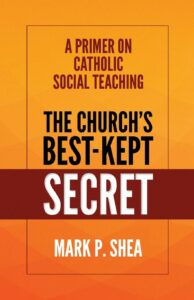 (By the way, not to digress too much, but there is a nice chapter on a Roman Catholic perspective on work and labor within the broader context of what they call Catholic Social Teaching in a book I’ve suggested before, The Church’s Best-Kept Secret: A Primer on Catholic Social Teaching by Mark Shea (New City Press; $16.95 / OUR BOOKNOTES SALE PRICE = $13.56.))
(By the way, not to digress too much, but there is a nice chapter on a Roman Catholic perspective on work and labor within the broader context of what they call Catholic Social Teaching in a book I’ve suggested before, The Church’s Best-Kept Secret: A Primer on Catholic Social Teaching by Mark Shea (New City Press; $16.95 / OUR BOOKNOTES SALE PRICE = $13.56.))
Despite all this good literature and teaching and the energy around these institutes, classes, videos and websites, we here at the shop sometimes feel like outliers or weirdos with all our books about work and calling, vocation and jobs, authors helping us thank God it is Monday, teaching us how to follow Christ into the marketplaces and offices and schools and businesses and factories and clinics and studios, holy ground that they all can be. But as these books and organizations and Papal Encyclicals all show, we are not alone. So today we are grateful. On this Labor Day weekend we invite you to pray and think and talk with others about this. Maybe buying a couple of books would be helpful for you and your church, equipping all to serve God in all that they do. Pastors — bone up on this. Church librarians — come on! Small group leaders — why not encourage a small group in your church to try one of these? College ministry folks? Obviously, you should be doing this! We’re here to help and it would be our pleasure to serve you further in this.
+++
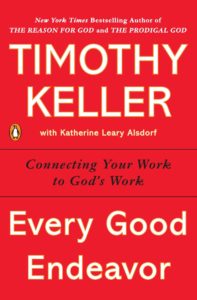 As we note (ad nauseam, some may feel) we do have a large section on books about vocation and calling, and we have a large different section of books about work, helping people get a vision for seeing ways to serve God in the workplace, and how, as Tim Keller’s great book puts it, we can serve join God in our “every good endeavor.” I love Tom Nelson’s book Work Matters about how as a pastor he helped his congregation relate “Sunday faith and Monday work.” What a joy to recommend John Van Sloten’s Every Job a Parable: What Walmart Greeters, Nurses, and Astronauts Tell Us about God. In this section here at the shop we have books about craftsmanship, blue collar work, and various ways to find joy in the daily grind of our daily labor. I’ve highlighted books like this HERE, HERE, HERE, or HERE. (Notice that a few were first announced in hardcover years ago and now we have them at 20% off their current paperback prices.)
As we note (ad nauseam, some may feel) we do have a large section on books about vocation and calling, and we have a large different section of books about work, helping people get a vision for seeing ways to serve God in the workplace, and how, as Tim Keller’s great book puts it, we can serve join God in our “every good endeavor.” I love Tom Nelson’s book Work Matters about how as a pastor he helped his congregation relate “Sunday faith and Monday work.” What a joy to recommend John Van Sloten’s Every Job a Parable: What Walmart Greeters, Nurses, and Astronauts Tell Us about God. In this section here at the shop we have books about craftsmanship, blue collar work, and various ways to find joy in the daily grind of our daily labor. I’ve highlighted books like this HERE, HERE, HERE, or HERE. (Notice that a few were first announced in hardcover years ago and now we have them at 20% off their current paperback prices.)
(And, of course, I might add, we created an adjunct special online e-commerce site listing books in dozens of industry-specific categories that you can use to browse books for your own calling. We did this for the CCO’s Jubilee Conference for college students and show and describe there a starting list of books — most fairly basic, but some more advanced — in professions from law to the arts, science to psychology, education to business, sports to health care, engineering to media studies, and on and on. See that curated, special Hearts & Minds e-commerce site HERE.)
Today, in honor of Labor Day, we not only invite you to click on those links to organizations and, hopefully, those previous BookNotes columns and that adjunct, supplemental Hearts & Minds e-commerce Jubilee bookstore, but will highlight here briefly a handful of mostly recent books that are good additions to the growing library on books in this growing field. All are 20% off.
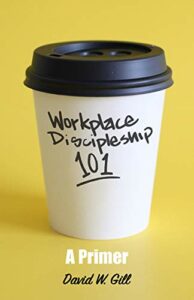 Workplace Discipleship 101: A Primer David W. Gill (Hendrickson) $17.95 OUR SALE PRICE = $14.36
Workplace Discipleship 101: A Primer David W. Gill (Hendrickson) $17.95 OUR SALE PRICE = $14.36
Don’t let the word “a primer” cause you to think this is too basic. It is basic and clearly presented, but Gill is brilliant, a world-renowned scholar of the radical social thinker Jacques Ellul; he was the first director of the Mockler Center for Faith and Ethics in the Public Square at Gordon Conwell and has been studying this stuff for a long, long time. This jam-packed book has 12 good chapters with lots of sidebars and discussion stuff, making it ideal for a small group at your church or college or, better, your workplace.
As Missy Wallace, Executive Director of the Nashville Institute for Faith and Work puts it,
It enables a senior leader, a middle manager, or a blue-collar worker to gain practical, implementable next steps towards a more integrated life.
Fernando Tamara, Director and Researcher at the Jesse Miranda Center for Hispanic Leadership (Los Angeles) says,
This is a must-read for all Christians who want to share their faith and see God transform their work.
Listen to Tom Nelson, Lead Senior Pastor, Christ Church, Kansas City; President, Made to Flourish Author, Work Matters: Connecting Sunday Worship to Monday Work
Few people I know have thought more deeply and practically about the integration of the Christian faith in the workplace than David Gill. In Workplace Discipleship 101, David Gill’s keen intellect, ethical clarity, and encouraging heart frame a persuasive and practical guide for all apprentices of Jesus who long to embrace an integral faith. This book is an invaluable resource I have been waiting for. I highly recommend it!
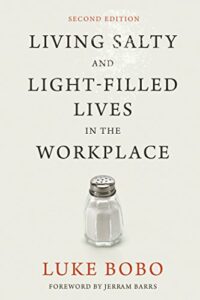 Living Salty and Light-Filled Lives in the Workplace Luke Bobo (Resource Publications) $16.00 OUR SALE PRICE = $12.80
Living Salty and Light-Filled Lives in the Workplace Luke Bobo (Resource Publications) $16.00 OUR SALE PRICE = $12.80
This is not a new one, but they changed the cover and updated it into a second edition a few years ago and it simply isn’t as well-known as it ought to be. I respect Luke Bobo so much. He is a strong African American leader who has had considerable experience in the work world; he has worked as an electrical engineer for 15 years, served in industry and business. He has taught, and spend years working in Christian higher education. He has served as Assistant Dean for Training Ministries at Covenant Theological Seminary and has directed the Francis Schaeffer Institute there. Now he works for Made to Flourish, the wonderful network I mentioned above, founded by Tom Nelson, author of Work Matters. Mr. Bobo’s Living Salty and Light-Filled Lives in the Workplace is a great example of the exact sort work he has been doing for years — making complex ideas and challenging discipleship obligations understandable and inviting — and a good indication of how valuable he has been as a leader at Made to Flourish.
Many of us have heard (heck, I bet many BookNotes readers have made) exhortations to be “salt” and “light” and “leaven” in the world, drawn, of course, from Jesus’s Sermon on the Mount in Matthew 5. What Christian doesn’t know that somehow we are to be influential in the world, adding savor and brightness, goodness and truth, to the world around us. And who does’t recall, once we think of it, anyway, that we spend maybe 90,000 hours over the course of our lives at our workplaces. (Sure, the work world is changing a bit with working from home and telecommuting, but the point is the same: we are to be God’s representatives bringing His healing goodness to bear on whatever space we inhabit, virtual or otherwise.) If we are called to infiltrate dark places to bring God’s light, and we spend most of our waking hours at work, well, shouldn’t we naturally want to connect the dots. Be salt and light in the work-world?
Living Salty and Light-Filled Lives in the Workplace would be an ideal book to give to anyone who wants to earnestly serve God with a sincere sort of discipleship but doesn’t know what it may entail to be salt and light. Whether one is in professional or blue collar jobs, this is a clear and practical and useful (and short) resource that is surely going to help many relate their faith to their jobs and callings in the world.
Unlike some books, this book gets to it’s point quick and easily. In fact, in the preface, Luke explains his strategy. He has three introductory chapters that are great and pointed, easily understood and inspiring. These are what he calls “the facts” and he makes a compelling case that Christ’s Lordship and the all encompassing nature of our faith means we simply cannot leave our faith for Sunday morning. We are sent by God with a vocation of serving in the world, including the seemingly secular workplaces we find ourselves. There are two good chapters here, and they each cover lots of truth about God, faith, the culture, the implications of faith in the complicated modern world. There are solid reflection questions making this ideal for a reading group or book club (or your pwn personal journalling and processing.) It offers fairly broad brush strokes painting a nice overview of our calling to be God’s salt and light and what that might look like in the work world.
The second portion has four chapters, and they corresponding with the four big themes many use these days to discuss the drama of the Bible story as it unfolds across the pages of Scripture — creation/fall/redemption/restoration — as it relates to our call to be salt and light at work. If the first 25 pages offered “the facts” he here fills in some “details” that underscore our understanding.
The four chapters in this portion are entitled:
-
- Creation: Simply Breathtaking!
- Sin, Consequences, and Our Work
- Some Marvelous Good News: Redemption!
- All Things New!
Yep, in less than 100 pages, Luke Bobo gives us a concise and Biblically informed vision of God’s work to redeem all things, including our culture and it’s work places, and our role in that as we take up the vocations God gives us. With His help and power, we become salt and light, even in the workplaces and job sites we find ourselves in.
Listen to author and respected teacher Jerram Barrs who wrote the foreword to Living Salty:
That faithful, clear, imaginative and powerful communication has now found its way to the printed page in this, Luke Bobo’s first book. I commend his exposition of the Christian’s calling to serve God in the workplace with joy, knowing this book will be a blessing to you and will help any reader to serve the Lord more faithfully, Sit down, open your heart and mind, be ready to learn and eager to be changed. God’s passion is that you be transformed from one degree of glory to another into the likeness of His Son. This book will be an instrument win the Lord’s hands to help shape you into that likeness, and to aid you as you seek to walk in the ways the Lot desires for you in your daily life. —Jerram Barrs, Professor of Christianity and Contemporary Culture, Covenant Theological Seminary and Resident Scholar of the Francis Schaeffer Institute
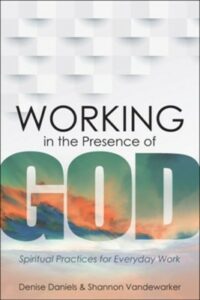 Working in the Presence of God: Spiritual Practices for Everyday Work Denise Daniels & Shannon Vandewarker (Hendrickson) $24.95 OUR SALE PRICE = $19.96
Working in the Presence of God: Spiritual Practices for Everyday Work Denise Daniels & Shannon Vandewarker (Hendrickson) $24.95 OUR SALE PRICE = $19.96
Once again, this book is one we have highlighted before at BookNotes, such as when it first came out, and then on one of our Best Books of the Year columns. As always, those are still available at our website and you can enter the authors name or the book title in our BookNotes archives. We did exclaim a bit about this because — as we said then, and as is still true today — there is hardly anything like this in print. Written by two professional women who have worked well in the corporate world, it offers not only a solid and robust vision of faith in the work world and a Christian view of serving God in business, they have done this by drawing out the ways in which we can practice spiritual disciplines in the 9-to-5 world. That is, the subtitle of this is not a ruse or metaphor, it really is about “practicing the presence of God” as the old classic puts it. It invites us to take Eugene Peterson’s famous comment to heart (when he said that the work world may be the primary place for spiritual formation.)
I love the arrangement of this fine book, too. The introduction includes a lovely reflection on “The Ordinary Rhythm of Work” which makes urgent the three major unites of this book. There are four chapters in each section.
First, there is the section they call “Orienting to Work” which shows how the workplace is, indeed, holy ground. We have to surrender the calendar, as they put it, and learn to read Scripture at work, to see how God speaks to us there. The “liturgy of commute” is nearly worth the whole price of the book.
Secondly, Daniels and Vandewarker write about “Engaging in Work.” This really does affirm the notions of calling, invites us to gratitude and celebration, to confession of sin (at work!) and lamenting at work. (Again, this is a chapter that is so rich and vital and not adequately spoken of in other books like this.)
The third portion is entitled “Reflection on Work” and, here, these high powered corporate women invite us to solitude, to prayer (including an examen for work) and to sabbath (that is, ceasing from work.) That they invite us to pay attention to God in this whole lifelong journey of ours, including our working lives, is just beautiful stuff.
This is a rare and solid book, mature and delightful. It will help anyone who has a job find God’s presence there and it will help anyone who desires to deepen their own sense of spirituality with fresh ideas for practicing these classic contemplative disciplines, even in and around the workplace.
In this remarkable book, spiritual disciplines such as confession, sabbath, lament, and solitude are applied to the workplace… Denise Daniels and Shannon Vandewarker challenge us to rethink our approach to work. Placing a spike in the heart of the artificial sacred/secular split, they call us to make Jesus lord over every aspect of our lives. —Alec Hill, President Emeritus, InterVarsity Christian Fellowship
We’ve had some wonderful studies in recent years about the theology of work and also about spiritual formation. In this book, the two come together in marvelous ways. The authors aren’t just telling us that we should be workers who also happen to have a spiritual life. They help us to practice the presence of God as we engage the real stuff of our working lives. . . .Practical wisdom abounds in these pages! —Richard J. Mouw, President Emeritus, Fuller Theological Seminary, author of All That God Cares About
By the way, for those who perhaps already have this fine hardback, you can now pre-order the forthcoming companion workbook that will be coming out in January 2022. It is called Practices for Working in the Presence of God: A Guided Journal (Hendrickson Publishing; $19.99 OUR SALE PRICE = $15.99 DUE DATE JANUARY 2022.)
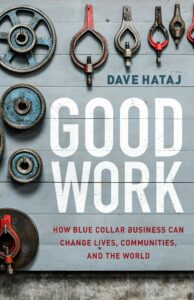 Good Work: How Blue Collar Business Can Change Lives, Communities, and the World Dave Hataj (Moody Press) $15.99 OUR SALE PRICE = $12.79
Good Work: How Blue Collar Business Can Change Lives, Communities, and the World Dave Hataj (Moody Press) $15.99 OUR SALE PRICE = $12.79
We’ve highlighted this briefly when it first came out, but with Covid and quarantining, we’ve not had the opportunity to take it on the road to conferences and bookselling events, so wanted to remind you of this splendid, inspiring book. It isn’t as much about blue collar labor as I would have wished (although he has a small bit about the brilliant cultural assessment of Matthew Crawford and his Shop Class as Soulcraft and his book on automation in the workplace called The World Beyond Your Head: On Becoming an Individual in an Age of Distraction.) Hataj is for anybody wanting to think faithfully about serving God well in the small business world, in factories or shops or the trades. The author is a machinist with a PhD, and that’s pretty cool, eh? It is handsomely made, too, with some two color ink and nice design touches.
Check out a few others that have endorsed Good Work:
A machinist with a doctoral degree–you don’t meet one of those every day. Nor will you often find a book that so effectively demonstrates the hand-in-glove relationship between faith and everyday work. In Good Work, David Hataj has given us a wide-open window into his years of experience in the “real world.” Hataj meshes making gears with serving God — not merely in theory but in actual practice. His story traces the painful path he traveled to make that faith-work connection. Good Work will expand your outlook on family health, meaningful work, integrity in business, mentoring, and bridging the generation gap.
–Larry Peabody Professor, Theology of Work, Bakke Graduate University; author, Job-Shadowing Daniel: Walking the Talk at Work
You will want to pass Dave Hataj’s Good Work on to every small business owner, especially those in the trades. Kingdom impact is possible in blue collar business. Dave’s secret sauce to integrating faith in the workplace is “Do what you say you’re going to do!” I could not put the book down, reading it all in two sittings. I resonated with what Dave has to say — my father was a machinist and also a pastor, both in church and in the machine shop. It felt like Dave was in the room with me all the time reminding me that God is infinitely more concerned with who we become than with what we accomplish.
–Willy Kotiuga Chair, Bakke Graduate University Board of Regents
Dave Hataj loves Jesus and this book is a testament to a life lived in pursuit of Him! It is the story of Jesus’ faithfulness, gentleness, and heart cry for each and every person made in His image, including those of us who find ourselves in a blue collar world. This is a unique and essential contribution to the “faith and work” conversation that, if ignored, is done so at the peril of the Christian church around the globe. Finally, and somewhat less obviously, it is proof that behind every married man, there is a strong and loving woman. Without Tracy, the pages of this book would lie empty. –Josiah Warren, carpenter
 Work: Its Purpose, Dignity, and Transformation Daniel M. Doriani (P&R) $15.99 OUR SALE PRICE = $12.79
Work: Its Purpose, Dignity, and Transformation Daniel M. Doriani (P&R) $15.99 OUR SALE PRICE = $12.79
I raved about this when it first came out in Spring of 2019. I admitted, as I recall, that I wondered what new could be said now that we are in the midst of a renaissance of books on this topic. And I was stunned — this is one of the best foundational resources we should have for those interesting in thinking very well about this topic. Yes, some of this has been covered in other seminal volumes, but I really think this is a key book, catapulting into my top few on faith and work. It looks at many aspects of this topic (rooted in a good view of creation and the cultural mandate, aware of sin and structural injustices, robust in the truth and scope of Christ’s redemption and his Kingdom coming.) He’s had a lot of jobs so he has lots of stories, too. What fun!
Doriani is an old pal from the CCO campus ministry (and the early days of our Jubilee conference) and has served not only as a pastor and theologian (having done academic theological work at Westminister Theological Seminary and Yale Divinity School) but is the recent founder and director of the Center for Faith & Work in St. Louis, affiliated with Covenant Theological Seminary where where he now works. Work: Its Purpose, Dignity and Transformation is a winner.
The last few years have witnessed a flurry of books that treat a Christian view of work. This is the best of them. Well written, historically comprehensive, theologically informed, exegetically sensitive, this is now the ‘must read’ volume on the subject. — D. A. Carson, Professor of New Testament, Trinity Evangelical Divinity School
“With a high view of creation, a great love for the gospel, and the hope of Christ’s kingdom stirring in his heart, Dan has given us a wonderful introduction to a biblical theology of work. It is accessible, practical, and brimming with Dan’s wonderful personality.” — Scotty Smith, Pastor, Christ Community Church, Franklin, TN
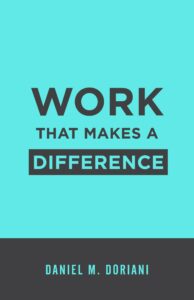 Work That Makes a Difference Daniel M. Doriani (P&R) $12.99 OUR SALE PRICE = $10.39
Work That Makes a Difference Daniel M. Doriani (P&R) $12.99 OUR SALE PRICE = $10.39
I just finished this little book and very, very heartily endorse it. I love that is offers a good summary of his earlier book (Work: It’s Purpose, Dignity and Transformation) and extrapolates from the teachings there that God wants to transform the workplace to create spaces and institutions that help the world and provide decent and just work for people to get to use their God given gifts for the common good. That is, there is this bigger purpose for all of this, and it is more than finding fulfillment and more than merely being ethical. It is about loving God and neighbor, of course, and this book shows how you can “discover what makes your work both good and strategically valuable — and then develop a concrete plan to make a difference in your corner of the world.”
Doriani rightly shows how the workplace is not only a strategic place for social change but how, even if we want to change it, it often changes us. (And, as a guy who has had a lot of different jobs, from freight handler to tennis coach, tour guide to security guard, he has some first hand experiences.) This is an invitation and a warning, showing how work is a gift and and obligation, and how the work world exits for God’s glory but is fallen and often anguished. I like his balance and tone and practicality, knowing it is rooted in the big ideas shared in his larger, previous book.
It seems that Work That Makes a Difference is designed especially for small groups. There are discussion questions, case studies, suggestions and “next step” recommendations. It includes prayers and guidance for helping one another be more intentional about all of this. There are 9 short chapters. It’s a great little volume, a good, good tool, and highly recommended.
For the last year, Dan Doriani and I have empowered multicultural leaders with weekly meetings using Work That Makes a Difference. I highly recommend Dan’s book and invite you to join the team of multicultural faith-and-work disciple makers who live out the love of Jesus daily in the marketplace. —Brad Wos, Multicultural Director, Evangelical Free Church, Central District
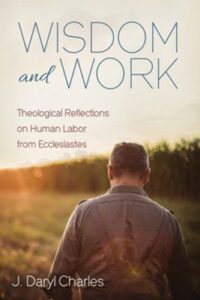 Wisdom and Work: Theological Reflections on Human Labor and Ecclesiastes J. Daryl Charles (Cascade Books) $27.00 OUR SALE PRICE = $21.60
Wisdom and Work: Theological Reflections on Human Labor and Ecclesiastes J. Daryl Charles (Cascade Books) $27.00 OUR SALE PRICE = $21.60
Some serious-minded BookNotes readers may know Daryl Charles for his extraordinary 2002 study The Unformed Conscience of Evangelicalism or his several books on natural law and the just war theory. He is affiliated as a scholar in theology and social ethics with the right-ward leaning Catholic Acton Institute. His last book was published by Acton called Wisdom’s Work: Essays on Ethics, Vocation, and Culture. You may have seen his work in First Things or Providence.
I wanted to list this one not only because it is new and the author is important, but because it is doing what not many have done — plumbing the insights of Ecclesiastes in a way that is generative and fruitful, walking a third way between those who perhaps see it as nothing but sour or those who fail to grapple with its cunning social criticism. Further, Dr. Charles explores it’s teaching and insight about work, a topic that is (surprise, surprise) not often discussed in standard commentaries on this wisdom book.
Much of Wisdom and Work is, I should be clear, about Ecclesiastes. There isn’t much practical work-world advise and few quick take-aways for those wanting a quick formula for living out faith-in-the-marketplace. But using Qoheleth’s literary-rhetorical strategy and how the book “contrasts two diametrically opposed outlooks on life” showing us how meaning and purpose are to be sought after in the human experience (not meaningless, as a less substantive reading might led us to believe.) As the back cover puts it, “meaning and purpose…are by divine design to be the norm —a norm that infuses the daily, the ordinary, and perhaps most significantly, our work.”
The very first words spoken to the newly created human family found on the first pages of the Bible are words of vocation, a calling to imitate God through responsible work. Wisdom and Work is a gem for anyone interested in probing this critical topic through the lens of one of the most practical books in the Scriptures, Ecclesiastes. I highly recommend it both for preachers of any kind, and businesspeople seeking affirmation of their calling. —Robert Sirico, President, The Acton Institute for the Study of Religion and Liberty
The book of Ecclesiastes has often been held in suspicion by communities of faith for its unrelentingly pessimistic view of human life. In this outstanding study, J. Daryl Charles breaks the interpretive logjam that has long prevented the positive message–the good news–of the book of Ecclesiastes from reaching its readers and informing their work in the world with a clear, coherent, and joyful sense of vocation. —Lee Hardy, Professor of Philosophy Emeritus, Calvin University, author of Fabric of This World: Inquiries Into Calling, Career Choice, and the Design of Human Work
 Vocation: The Setting for Human Flourishing Michael Berg (1517 Publishing) $12.95 OUR SALE PRICE = $10.36
Vocation: The Setting for Human Flourishing Michael Berg (1517 Publishing) $12.95 OUR SALE PRICE = $10.36
This small paperback was a delight to read — written directly inspired by Martin Luther (and, more specifically, the seminal work Luther on Vocation by Gustaf Wingren, which we have long promoted.) As good, evangelical Lutherans know, talk about justification is not only about how Christ saves us — the cross of Christ through grace alone! — but is also a key work in thinking about the tendencies of the human condition. That is, without a gospel-centered identity, we try (sometimes knowingly, often less consciously) to justify ourselves. We try to prove to ourselves, to others, maybe even to God, that we are worthy. Of course, that isn’t how the gift of grace works: we are not worthy, so we might as well give up on the dead-end of self-justification. We need not pretend we have it together, we need to cover-up our failures or overstate our accomplishments. The burden of autonomous self-justification is deadly; it is ruining many of us with are drivenness and workaholism and perfectionists and shame. (And it taints our good work, too, with pride and privilege and such.)
We are freed from this burden, of course, through Christ’s redeeming work. But freedom, in this classic evangelical theology, means, as St. Paul puts it, we are freed to serve. We take up various stations (or places, callings, venues, offices) to serve our neighbors, each in their own place and way; we wear “masks” that God gives us, so to speak, so we can represent God in various ways to the watching world. Most such offices/stations and the “masks of God” we wear are not about employment — they include parenting and neighboring, being a citizen and being a friend. But it does, also, include our role as worker. While it may not be fully right to say glibly that we are God’s hands and feet, that common expression comes close to how it works. We love God’s world with God’s love and in the renewed image of Christ, we represent Him in the world. This is the point of our various callings and the key to the good life, the nature of shalom and human flourishing: we are avenues of God’s love.
Berg’s Vocation is a fun little book, potent and theologically rich. It is a fresh and concise explication of much of the background doctrine that should shape conversations about work and vocation, callings and careers. It has stuff about spiritual warfare, about cultural renewal, about daily labor. It becomes quite practical with teaching on “purpose and self-esteem” and “honor and craft” and “vocation as the setting for evangelism.” Good stuff, for sure.
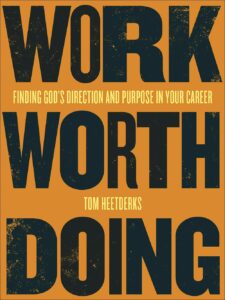 Work Worth Doing: Finding God’s Direction and Purpose in Your Career Tom Heetderks (Harvest House) $15.99 OUR SALE PRICE = $12.79
Work Worth Doing: Finding God’s Direction and Purpose in Your Career Tom Heetderks (Harvest House) $15.99 OUR SALE PRICE = $12.79
I often mention the annual Pittsburgh Jubilee Conference run by our friends at the CCO, a college ministry conference designed to help studies get a missional vision for their lives as themes of whole-life discipleship and vocation and calling and the coming Kingdom of God are explored with hip relevance for emerging adults and soon-to-be young professionals. Our friends at the Pittsburgh Leadership Foundation run a one-day event before Jubilee each year, often called Jubilee Professional (or J-Pro, for short) that uses some of the same speakers but inviting them to address adults in the great Pittsburgh area. They talk about serving God as agents of His holy restoration in the arts, culture, business, social service worlds, and, of course, the local church. I say all this only to say that as I was speaking on Zoom there last year — talking about our own bookstores as a venue where these same topics are being discussed and promoted — I heard that a guy name Tom Heetderks was in the audience. Holy smokes, when an author of a book about vocation and calling designed, in part, with college students in mind, is involved in something as J-Pro, it means a lot. I checked out his book and loved it. It was an entertaining read, upbeat, and motivational.
“Find more than just a job” it says one the back cover, and invites those who are just starting out in the workforce or those trying to figure out their next step in life, to use this book as a tool to help discern how to “pursue careers filled with meaning and purpose according to God’s plan for our lives.”
Of course, as Tom explains, all of this is less about the kind of work you do and more about how you do it, and for whom.
Work Worth Doing is smart, practical, and has an enormous heart. In a unique and highly engaging conversational style, Tom Heetderks walks readers through a deeply personal encounter with the God-ordained purpose for what they’ll spend their careers doing. Reading it made me feel as if I were having a heart-to-heart talk with a trusted mentor over a cup of coffee. Eminently accessible and brimming with spiritual insight, this book tells the truth and offers a path forward full of meaning and hope. —Bryan Dik, PhD, professor of psychology at Colorado State University, cofounder of jobZology, and coauthor of Make Your Job a Calling
Whether flipping burgers or speaking from a pulpit, any job can be a mission field. Work Worth Doing provides humorous and thought-provoking insights that encourage a paradigm shift–a new understanding about the importance of a job and its God-ordained purpose. —Shaunti Feldhahn, bestselling author, social researcher, and international speaker
“Tom writes in a way that gives us a fresh understanding of God’s truth. Young leaders today need these insights and wise stories. How good to know our work is an opportunity to worship God daily in big and small ways. Live this way, and you will hear the most important words of all, ‘Well done, good and faithful servant. —Cheryl A. Bachelder, CEO, Pier 1 Imports, Inc. and author of Dare to Serve
 Durable Trades: Family-Centered Economies That Have Stood the Test of Time Rory Groves (Front Porch Republic Books) $25.00 OUR SALE PRICE = $20.00
Durable Trades: Family-Centered Economies That Have Stood the Test of Time Rory Groves (Front Porch Republic Books) $25.00 OUR SALE PRICE = $20.00
We are delighted to tell you about this recent book from the Front Porch Republic which could be very useful these days as folks are thinking about new sorts of employment, young adults maybe not wanting to necessarily go off to college, for those makers who are wanting to be part of the “shop class as soulcraft” renaissance. This handbook has bunches on chapters, each on different trades that could be taken up if one wants to buck the standard system of going to work for a big corporation but take up the call to be self employed or in a guild with others. Groves writes eloquently on everything from silversmithing to leatherwork, from becoming a plasterer or sawyer or mason or butcher. Other “family friendly” careers could be various sort of farming jobs (shepherding, for instance) or finding livelihood as an artist, counselor, innkeeper, brewer, baker, embalmer, tutor… he has chapters on bunches of job options and it is all so interesting, in contrast to what he calls “brittle systems.”
Durable Trades offers some astute observations of the upheavals caused by the Industrial Revolution, writes eloquently about meaningful work and a good life, and invites us to take up trades that are durable, lasting, real. There is a thoughtful foreword by Allan Carlson He even rates each job for various features and benefits such as its historical stability, its resiliency, its easy of entry, and more. Fascinating!
 Work and Worship: Reconnecting Our Labor and Liturgy Matthew Kaemingk and Corry B. Willson (Baker Academic) $29.99 OUR SALE PRICE = $23.99
Work and Worship: Reconnecting Our Labor and Liturgy Matthew Kaemingk and Corry B. Willson (Baker Academic) $29.99 OUR SALE PRICE = $23.99
Oh my, where do I begin? I raved about this at BookNotes before it even came out and I’d invite you to review my announcement about it HERE; others have reviewed it with similar enthusiasm, and I wish it would have taken off in a bigger way here. There is simply nothing like it on the market and, demanding and sophisticated as it is, it is worth working through every single page.
Work and Worship: Reconnecting… does exactly what the subtitle says: it studies both liturgy and labor and the relationship between them. It leads us to wonder: why are there precious few worship resources about our daily lives and our callings to the work world? And, similarly, why do so few of the many great books about work and calling, labor and jobs, marketplace and ministry, not talk much (if at all) about the church and her worship? This is a book that we really, really need.
Long before Tom Nelson used it in his great book subtitle, many of us talked about “connecting Sunday and Monday”, work and worship, liturgy and labor (and prayer and politics, for that matter) since it rolls of the tongue so well. It is symbolic and metaphorical, usually, when I use it evoking relating faith and life, all that Sunday stands for and all that Monday signifies. That preaches.
Kaemingk and Willson get that, but they here have helped us do more than just use those phrases to suggest a Christian public theology that includes work. No, they don’t just leave it at that, inviting us to think about God and our work, but they literally are asking us to worship well in light of God’s calling into the work-world, and to be shaped in our Christian perspective about work by the things we do in worship. They literally are inviting us to new and fresh liturgical insights about the formative power of well-designed worship services that can inspire us to see God’s mission in workplace.
With chapters as intersting as “Workers in the Pews” and “Worship That Fails Workers” this book is truly fascinating, if hard hitting at times. (They are never arrogant or self-righteous in this, by the way, but have good hearts for God’s people. They love the church and love that God wants the local worshipping body to be fully inspired in all that that leads to, including scattering out as salt and light into the work zones and various tasks of our Monday worlds.) The main heart of the book, the large middle portion, is Biblical in nature, offering chapters from each part of Scripture, showing insights from those portions of Scripture and ways to be more fully Biblical in our worship services.
The last large unit is under the rubric of “Practices” and includes three solid chapters entitled “Work at the Lord’s Table,” “Worship that Gathers Workers” and “Worship that Scatters Workers.” I am sure there are ideas here you could start to implement in your own church and worship experiences right away. Others will lead you to ponder and pray. I suspect if you are serious about this you will want more than one copy so that your own worship leadership, team or committee will be tracking with the things you are thinking as your reform your own liturgical practices and worship language.
Rather than explain again the many virtues of this great book and the many useful ideas it gives and tools it offers, read, please, these great comments by leaders in the worlds of worship renewal and cultural renewal. These great blurbs show that this, truly, is one of the most rare and groundbreaking and important books in recent years. Again, there is nothing like it.
And if you allow me to circle back to my opening remarks in this Labor Day 2021 column, above, I might say that if this book is widely distributed and studied and used — especially for anyone forming new worship services or church planting or teaching about the liturgical arts and worship leaders — maybe, just maybe, folks will start seeking out books on how to think and act Christianly in their job sites. Maybe the lack of a book like this is the reason the faith and work movement has been limited to small pockets here and there. We have been lackluster in advancing this Godly call and Kingdom movement about faith in the work world in part because we have not prayed and revered and worshipped well about it. Kaemingk and Willson are out to help us solve this. Work and Worship: Reconnecting our Labor and Liturgy is a book every church should consider so we can more fully honor God with our worship and more fully equip God’s saints as they are sent into the Monday world of work, labor, and life.
“Here, finally, is the book that will take the ‘faith and work’ conversation to new depths of intentionality. With theological clarity and real-world accountability, Kaemingk and Willson mend what we have rent asunder. Advancing scholarship in theology of culture, it is also a must-read for those who lead worship for workers–which includes, of course, everyone. This should become a standard textbook, for the sake of the church and for the sake of the world.” — James K. A. Smith, Calvin University; author of Desiring the Kingdom, You Are What You Love, and On the Road with Saint Augustine
“Kaemingk and Willson make an inspired contribution to the underdeveloped connection between work and worship in Christian life. They do not take the predictable approach of beginning with a theology of work and applying it to worship; rather, they come at it from the opposite direction, proposing that when references to labor are faithfully represented in the liturgy, it forms us for the work we ultimately present to God in all vocations.” — Constance M. Cherry, Indiana Wesleyan University; author of The Worship Architect
“Born of years of deepening commitment and maturing insight, the great gift of this groundbreaking book is its remarkably rich study of Scripture and history, showing that the deepest, truest witness through the centuries comes from an understanding of liturgy and labor–which is surprisingly seamless. Work and Worship is a gift to the church.” — Steven Garber, senior fellow for vocation and the common good, M. J. Murdock Charitable Trust; author of The Seamless Life: A Tapestry of Love and Learning, Worship and Work
“In this beautiful and timely tome, Kaemingk and Willson argue quite persuasively and winsomely how work and worship were meant to be seamlessly coupled. They skillfully and methodically trace the rich biblical, theological, and historical foundation of this work and worship coupling across diverse people groups and cultures, ancient and modern. It is my earnest prayer that this book finally reunites and binds together–forever–these two vital segments of our lives.” — Luke Bobo, director of strategic partnerships, Made to Flourish
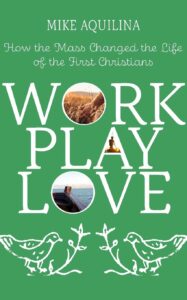 Work Play Love: How the Mass Changed the Life of the First Christians Mike Aquilina (Paraclete Press) $12.99 OUR SALE PRICE = $10.39
Work Play Love: How the Mass Changed the Life of the First Christians Mike Aquilina (Paraclete Press) $12.99 OUR SALE PRICE = $10.39
What a great, brief, compact-sized book this is. I read it in two sittings and couldn’t stop thinking about it (and talking about it) for days. I am not Roman Catholic, of course, and I may have missed a few nuances of the vibrant Aquilina’s theology, but it sure rang true to me. It was a delightful survey of the significance of true worship in the life of God’s people and the spiritually formative power of authentic worship. As he says over and over, a real encounter with Christ in worship necessarily spills out into all of life and this has huge (almost sacramental) implications for how we work, play, and love.
Naturally, for a Catholic, especially one who loves Jesus as much as this author obviously does, the worship service must include the Eucharist, and so, the word “Mass” is in the title. But for those with other theologies of worship and other perspectives on the Lord’s Supper/holy communion/eucharist, Mr. Aquilina’s views still are exceptionally relevant. I found myself nodding in agreement (as would, I kept thinking, Kaemingk & Willson, who are themselves deeply ecumenical and neo-Calvinist.) I’m telling you, regardless of your own denomination, this is a great little book and I highly recommend it. If you have too, anywhere he uses the word “The Mass” just substitute “worship.”
Mike Aquilina is the Executive Vice President and Trustee of The St. Paul Center for Biblical Theology, is a widely recognized Catholic author and lecturer. He’s known for scholarly work on the patristics (which shows in this simple but compulsively footnoted book — he knows his early church stuff, and peppers his upbeat writing with lines like this, which, he tells us, originated from the Martyrs of Abitine in North Africa in A.D. 304, “Christians make the mass and the Mass makes Christians.” I don’t know who the Martyrs of Abitine were, but it’s the same insight we hear from beloved contemporary evangelical writers like Tish Harrison Warren (Liturgy of the Ordinary) and Jamie Smith (You Are What You Love.)
Did you know that early Christians brought the fruit of their labors to the altar in worship — not only bread and wine, but also cheese, honey, olives, dried fish, and freshly pressed oil? As Dr. A puts it, “As they worshipped, they consecrated the world itself to God.” His teaching about how early worship inspired believers to live out their faith in the worlds of work and service are nothing short of inspiring.
He explains (by way of setting up a good quote by Justin Martyr from about the year 150) that working for a living was a scandal among the Greeks and Romans (influenced as they were by Plato and their slavery system) and it was commonly hurled at Jesus followers as an insult. Justin Martyr, in Aquilina’s colorful prose,”…comes out of his corner like a boxer, leading with his chin, as he heralds Jesus as the unremarkable carpenter…” After a neat sidebar with the quotation, Aquilina continues, noting that Justin argued that Jesus taught us about a righteous life by working with his hands. “That’s an idea,” he says, “that changed the world.” A God with dirty, working-man’s hands. Imagine!
Aquilina writes,
Christianity was hardly a hundred years old when a pagan intellectual named Celsus launched a vigorous attack against it.
This religion couldn’t be true, he argued, because it was made up of shoemakers, cleaners, weavers, and other common laborers. Its God was a carpenter, for heaven’s sake. His mother spun cloth. And his great spokesperson was a tentmaker. How could a religion made up of such lowly people be anything but contemptible?
Yup.
As the back cover puts it nicely, Aquilina also explains how a certain sort of playfulness, creativity, and leisureliness entered the culture in part due to the gentle tone of the early worship services and the values they portrayed. He writes, “The Mass was a leisurely, contemplative act, but it was celebrated on a normal workday in the Roman world. It was useless by the standard of the city. And yet it called forth — gently, gradually — the most creative responses.” This extravagant act that has no economic consequences speaks volumes to our culture of hot-wired rush and productivity. Such a weekly ritual could nearly be subversive to our idols of economic growth, no?
Of course, the Christian ritual demanded personal and communal acts of charity. “The earliest description of the Mass show the importance of the collection and its distribution to the poor, the imprisoned, and the homebound sick.” As he shows, this led to the establishment of institutions of universal charity, a first in human history.
One reviewer describes how beautifully written and wise this little volume is and notes that “Nobody makes the past more present than Mike Aquilina.” I agree — this was a dip into the earliest practices of our ancestors in Christ and whether you are Protestant, Orthodox, Anabaptist,Roman Catholic, or whatever, there is much to learn in this short, inspiring essay. That what some of us write about regarding work, callings, vocations, and whole-life discipleship, is most evangelical Protestant is fine, but hearing from this charismatic Roman Catholic scholar can only help us all. Work, Play, Love is a delight.
It is very helpful if you would tell us how you prefer us to ship your orders.The weight and destination of your package varies but you can use this as a thumbnail, general guide.
There are generally two kinds of US Mail options, and, of course, UPS. If necessary, we can do overnight and other expedited methods, too.
Let us know what you prefer.
- United States Postal Service has the option called “Media Mail” which is cheapest but slow and may be delayed. For one book, usually, it’s about $3.49.
- United States Postal Service has another option called “Priority Mail” which is about $7.60 or so for a few books and that gets much more attention than does “Media Mail.”
- UPS Ground is more reliable but about $8.00 or more for one or two books to most places.
DON’T FORGET TO LET US KNOW WHAT SHIPPING METHOD YOU PREFER. If you want US Mail, please say which sort — media mail or priority mail — so we know how to serve you best.
BookNotes
SPECIAL
DISCOUNT20% OFF
ALL BOOKS MENTIONED
+++
order here
this takes you to the secure Hearts & Minds order form page
just tell us what you want to orderinquire here
if you have questions or need more information
just ask us what you want to knowHearts & Minds 234 East Main Street Dallastown PA 17313
read@heartsandmindsbooks.com
717-246-3333
We are still closed for in-store browsing due to our commitment to public health and the common good (not to mention the safety of our staff and customers.) The vaccination rate here in York County is sadly lower than average.The new variants are raging. We are doing fun, outdoor, backyard customer service, our famous curb-side delivery, and can show any number of items to you if you call us from our back parking lot. We are eager to serve and grateful for your patience as we all work to mitigate the ongoing pandemic.
Of course, we’re happy to ship books anywhere. Just tell us how you want them sent.
We are here 10:00 – 6:00 Monday – Saturday; closed on Sunday. Thanks for your support.


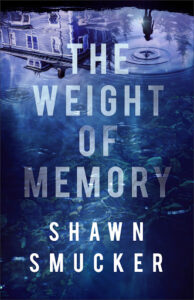 The Weight of Memory Shawn Smucker (Revell) $15.99 OUR SALE PRICE = $12.79
The Weight of Memory Shawn Smucker (Revell) $15.99 OUR SALE PRICE = $12.79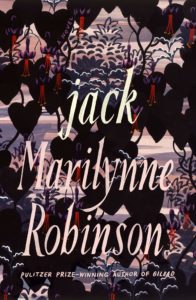 Jack Marilynne Robinson (Picador) $17.00 paperback OUR SALE PRICE = $13.60
Jack Marilynne Robinson (Picador) $17.00 paperback OUR SALE PRICE = $13.60
 Hamnet: A Novel of the Plague Maggie O’Farrell (Knopf/Vintage) $26.95 hardback; $16.95 paperback OUR SALE PRICES = $21.56 hardback $13.56 paperback
Hamnet: A Novel of the Plague Maggie O’Farrell (Knopf/Vintage) $26.95 hardback; $16.95 paperback OUR SALE PRICES = $21.56 hardback $13.56 paperback The Weight of Ink Rachel Kadish (Mariner) $16.99
The Weight of Ink Rachel Kadish (Mariner) $16.99 The Sweetness of Water Nathan Harris (Little Brown) $28.00
The Sweetness of Water Nathan Harris (Little Brown) $28.00 The Pastor: A Crisis Bradley Jersak & Paul Young (Cappella Books) $19.95
The Pastor: A Crisis Bradley Jersak & Paul Young (Cappella Books) $19.95 The Five Wounds Kirstin Valdez Quade (W. W. Norton) $26.95 OUR SALE PRICE = $21.56
The Five Wounds Kirstin Valdez Quade (W. W. Norton) $26.95 OUR SALE PRICE = $21.56 Klara and the Sun Karuo Ishiguor (Knopf) $28.00 OUR SALE PRICE = $22.40
Klara and the Sun Karuo Ishiguor (Knopf) $28.00 OUR SALE PRICE = $22.40 The Four Winds
The Four Winds The Incredible Winston Browne Sean Dietrich (Thomas Nelson) $26.99
The Incredible Winston Browne Sean Dietrich (Thomas Nelson) $26.99 Chasing Manhattan John Gray (Paraclete Press) $24.00 OUR SALE PRICE = $19.20
Chasing Manhattan John Gray (Paraclete Press) $24.00 OUR SALE PRICE = $19.20
 Jacobo the Turko: A Novel In Verses Phillip Bannowsky (Broken Turtle Books) $20.00
Jacobo the Turko: A Novel In Verses Phillip Bannowsky (Broken Turtle Books) $20.00 Eden Mine S. M. Hulse (Picador) $17.00
Eden Mine S. M. Hulse (Picador) $17.00
 Steeped in Stories: Timeless Children’s Novels to Refresh Our Tired Souls Mitali Perkins (Broadleaf) $24.99. OUR SALE PRICE = $19.99
Steeped in Stories: Timeless Children’s Novels to Refresh Our Tired Souls Mitali Perkins (Broadleaf) $24.99. OUR SALE PRICE = $19.99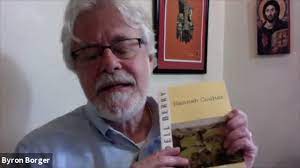 A few weeks ago I was asked to do a Zoom presentation, a talk on the Biblical basis for creation care (what some call environmental stewardship) and cultivating a faith-based ecological worldview. I noted that we’ve written often (here at BookNotes) about the good books available that remind us to “tend and keep the garden” as Genesis 2 puts it. It was an honor to speak to a small group from an evangelical church in a major East Coast city, one troubled by pollution of all sorts. What a beautiful thing to see young professionals praying for God’s guidance as they desired to learn more about how to be faithful in this aspect of our complicated days. I’m no expert but they mostly needed some guidance in opening up the Biblical texts and seeing a coherent eco-theology that emerges from God’s Word. It was a great joy that I did not take lightly.
A few weeks ago I was asked to do a Zoom presentation, a talk on the Biblical basis for creation care (what some call environmental stewardship) and cultivating a faith-based ecological worldview. I noted that we’ve written often (here at BookNotes) about the good books available that remind us to “tend and keep the garden” as Genesis 2 puts it. It was an honor to speak to a small group from an evangelical church in a major East Coast city, one troubled by pollution of all sorts. What a beautiful thing to see young professionals praying for God’s guidance as they desired to learn more about how to be faithful in this aspect of our complicated days. I’m no expert but they mostly needed some guidance in opening up the Biblical texts and seeing a coherent eco-theology that emerges from God’s Word. It was a great joy that I did not take lightly.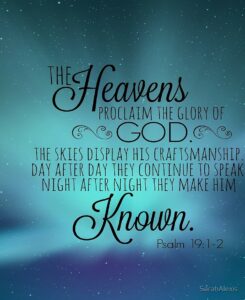 not too many were writing about this, to training folks in nonviolent civil disobedience against TMI-era nuke plants, to testifying about the loss of wonder (and the capacity for proper awe of God, according to some Old Testament texts) when we experience creational degradation such as light pollution. My little testimony about Psalm 19:1-4 in a public hearing fighting a local Wal Mart expansion into country fields was shown on Cable TV on and off for years.
not too many were writing about this, to training folks in nonviolent civil disobedience against TMI-era nuke plants, to testifying about the loss of wonder (and the capacity for proper awe of God, according to some Old Testament texts) when we experience creational degradation such as light pollution. My little testimony about Psalm 19:1-4 in a public hearing fighting a local Wal Mart expansion into country fields was shown on Cable TV on and off for years.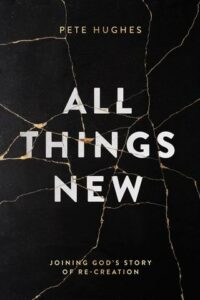 creation and starting over with a brand new one (let alone taking us to an ethereal heaven.) God is remaking all things, making all things (re)new(ed.)
creation and starting over with a brand new one (let alone taking us to an ethereal heaven.) God is remaking all things, making all things (re)new(ed.)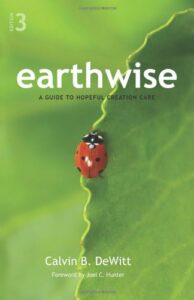 EarthWise: A Guide to Hopeful Creation Care Calvin B. DeWitt (Faith Alive) $16.00 OUR SALE PRICE = $12.80
EarthWise: A Guide to Hopeful Creation Care Calvin B. DeWitt (Faith Alive) $16.00 OUR SALE PRICE = $12.80 Stewards of Eden: What Scripture Says About the Environment and Why It Matters Sandra L. Richter (IVP Academic) $20.00
Stewards of Eden: What Scripture Says About the Environment and Why It Matters Sandra L. Richter (IVP Academic) $20.00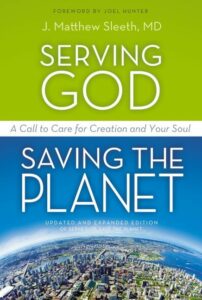 Serving God, Saving the Planet: A Call to Care for Creation and Your Soul Matthew Sleeth, MD (Zondervan) $14.99
Serving God, Saving the Planet: A Call to Care for Creation and Your Soul Matthew Sleeth, MD (Zondervan) $14.99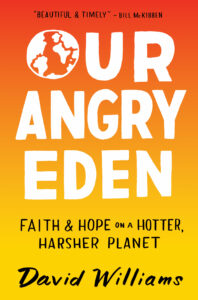 Our Angry Eden: Faith and Hope on a Hotter, Harsher Planet David Williams (Broadleaf) $26.99
Our Angry Eden: Faith and Hope on a Hotter, Harsher Planet David Williams (Broadleaf) $26.99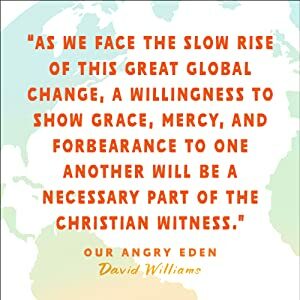 The last handful of chapters are shorter and plentiful as he tells stories and preaches some and offers us on-ramps and first steps and moral arguments for living well in the face of this very real climate crisis. He is charming and funny — eating a vegetarian diet is an important way to cut personal carbon emissions, as we all know, and he colorfully (and graciously) describes cooking backyard steaks on the grill for his family or guests as he grills his modest veggies. He is a born storyteller, it seems, and weaves his narratives from the personal to the public, from moral urgency to delightful freedom. We all are called to be responsible and he has opinions, lots, actually, of what we might do. He invites and evokes, but the book is anything but angry. It is one of my favorite books of this hot summer. Very highly recommended.
The last handful of chapters are shorter and plentiful as he tells stories and preaches some and offers us on-ramps and first steps and moral arguments for living well in the face of this very real climate crisis. He is charming and funny — eating a vegetarian diet is an important way to cut personal carbon emissions, as we all know, and he colorfully (and graciously) describes cooking backyard steaks on the grill for his family or guests as he grills his modest veggies. He is a born storyteller, it seems, and weaves his narratives from the personal to the public, from moral urgency to delightful freedom. We all are called to be responsible and he has opinions, lots, actually, of what we might do. He invites and evokes, but the book is anything but angry. It is one of my favorite books of this hot summer. Very highly recommended.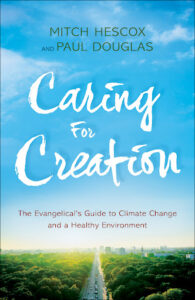 Caring for Creation: The Evangelical’s Guide to Climate Change and a Healthy Environment Mitch Hescox & Paul Douglas (Bethany House) $16.00
Caring for Creation: The Evangelical’s Guide to Climate Change and a Healthy Environment Mitch Hescox & Paul Douglas (Bethany House) $16.00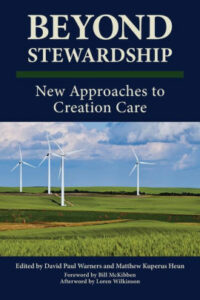 Beyond Stewardship: New Approaches to Creation Care edited by David Paul Warners & Matthew Kuperus Heun (Calvin College Press) $17.99
Beyond Stewardship: New Approaches to Creation Care edited by David Paul Warners & Matthew Kuperus Heun (Calvin College Press) $17.99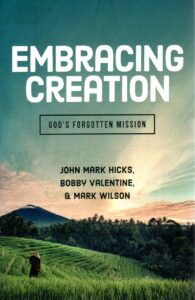 Embracing Creation: God’s Forgotten Mission John Mark Hicks, Bobby Valentine & Mark Wilson (Leafwood Publisher) $14.99 OUR SALE PRICE = $11.99
Embracing Creation: God’s Forgotten Mission John Mark Hicks, Bobby Valentine & Mark Wilson (Leafwood Publisher) $14.99 OUR SALE PRICE = $11.99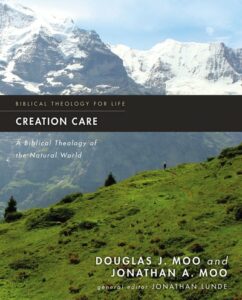 Creation Care: A Biblical Theology of the Natural World (in the “Biblical Theology for Life” series) Douglas J. Moo & Jonathan A. Moo (Zondervan) $24.99 OUR SALE PRICE = $19.99
Creation Care: A Biblical Theology of the Natural World (in the “Biblical Theology for Life” series) Douglas J. Moo & Jonathan A. Moo (Zondervan) $24.99 OUR SALE PRICE = $19.99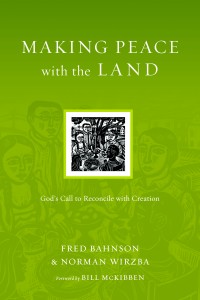 Making Peace with the Land: God’s Call to Reconcile with Creation Fred Bahnson & Norman Wirzba (IVP) $18.00
Making Peace with the Land: God’s Call to Reconcile with Creation Fred Bahnson & Norman Wirzba (IVP) $18.00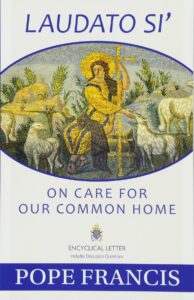 Laudato Si’ – On Care for Our Common Home Pope Francis (Our Sunday Visitor) $12.95
Laudato Si’ – On Care for Our Common Home Pope Francis (Our Sunday Visitor) $12.95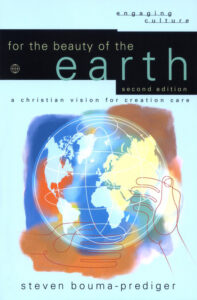 For the Beauty of the Earth: A Christian Vision for Creation Care Steven Bouma-Prediger (BakerAcademic)
For the Beauty of the Earth: A Christian Vision for Creation Care Steven Bouma-Prediger (BakerAcademic)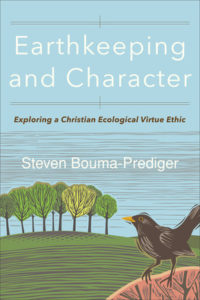 Earthkeeping and Character: Exploring a Christian Ecological Virtue Ethic Steven Bouma-Prediger (Baker Academic) $24.99
Earthkeeping and Character: Exploring a Christian Ecological Virtue Ethic Steven Bouma-Prediger (Baker Academic) $24.99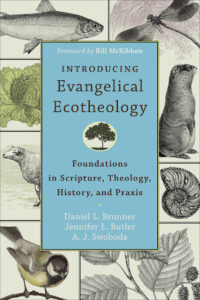 Introducing Evangelical Ecotheology: Foundations in Scripture, Theology, History and Praxis Daniel L. Brunner, Jennifer L. Butler, A. J. Swoboda (Baker Academic) $30.00
Introducing Evangelical Ecotheology: Foundations in Scripture, Theology, History and Praxis Daniel L. Brunner, Jennifer L. Butler, A. J. Swoboda (Baker Academic) $30.00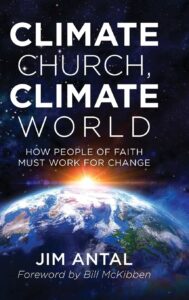 Climate Church, Climate World: How People of Faith Must Work for Change Jim Antal (Alban Institute/Rowman & Littlefield) $25.00
Climate Church, Climate World: How People of Faith Must Work for Change Jim Antal (Alban Institute/Rowman & Littlefield) $25.00  Ecotheology: A Christian Conversation edited by Kiara A. Jorgenson & Alan Padgett (Eerdmans) $24.99
Ecotheology: A Christian Conversation edited by Kiara A. Jorgenson & Alan Padgett (Eerdmans) $24.99 Plundering Eden: A Subversive Christian Theology of Creation and Ecology G.P. Wagenfuhr (Cascade Books) $27.00
Plundering Eden: A Subversive Christian Theology of Creation and Ecology G.P. Wagenfuhr (Cascade Books) $27.00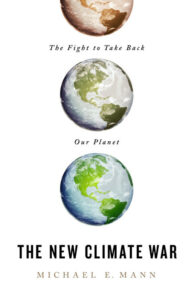 The New Climate War: The Fight to Take Back Our Planet Michael Mann (Public Affairs) $29.00
The New Climate War: The Fight to Take Back Our Planet Michael Mann (Public Affairs) $29.00  Toxic Communities: Environmental Racism, Industrial Pollution, and Residential Mobility Dorceta E. Taylor (New York University Press) $29.00
Toxic Communities: Environmental Racism, Industrial Pollution, and Residential Mobility Dorceta E. Taylor (New York University Press) $29.00 A Terrible Thing to Waste: Environmental Racism and Its Assault on the American Mind Harriet Washington (Little Brown, Spark) $17.99
A Terrible Thing to Waste: Environmental Racism and Its Assault on the American Mind Harriet Washington (Little Brown, Spark) $17.99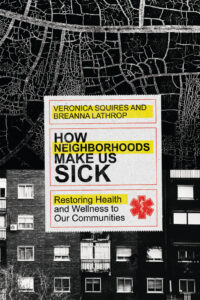 How Neighborhoods Make Us Sick: Restoring Health and Wellness to Our Communities
How Neighborhoods Make Us Sick: Restoring Health and Wellness to Our Communities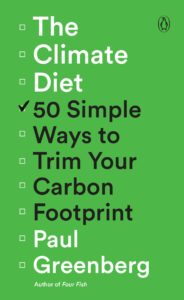 The Climate Diet: 50 Simple Ways to Trim Your Carbon Footprint Paul Greenberg (Penguin) $13.00
The Climate Diet: 50 Simple Ways to Trim Your Carbon Footprint Paul Greenberg (Penguin) $13.00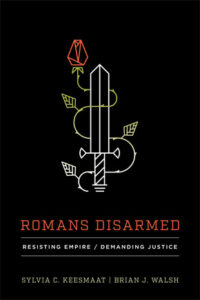 Romans Disarmed: Resisting Empire / Demanding Justice Brian Walsh & Sylvia Keesmaat (Brazos Press) $29.00
Romans Disarmed: Resisting Empire / Demanding Justice Brian Walsh & Sylvia Keesmaat (Brazos Press) $29.00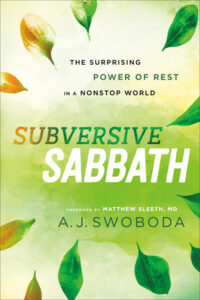 Subversive Sabbath: The Surprising Power of Rest in a Nonstop World A. J. Swoboda (Brazos Press) $19.99
Subversive Sabbath: The Surprising Power of Rest in a Nonstop World A. J. Swoboda (Brazos Press) $19.99 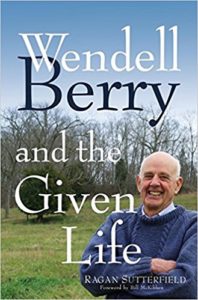
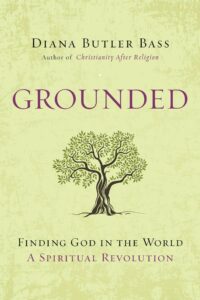 Grounded: Finding God in the World-A Spiritual Revolution
Grounded: Finding God in the World-A Spiritual Revolution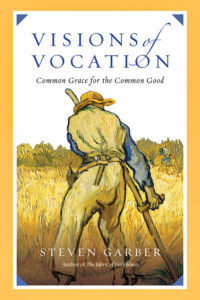 Visions of Vocation: Common Grace for the Common Good Steven Garber (IVP) $18.00 OUR SALE PRICE = $14.40
Visions of Vocation: Common Grace for the Common Good Steven Garber (IVP) $18.00 OUR SALE PRICE = $14.40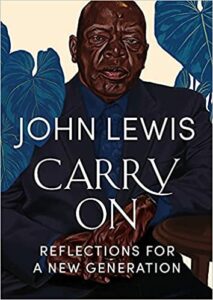 Carry on: Reflections for a New Generation John Lewis (Grand Central Publishing) $22.00 OUR SALE PRICE = $17.60 DUE DATE: JUST ARRIVED! AVAILABLE NOW
Carry on: Reflections for a New Generation John Lewis (Grand Central Publishing) $22.00 OUR SALE PRICE = $17.60 DUE DATE: JUST ARRIVED! AVAILABLE NOW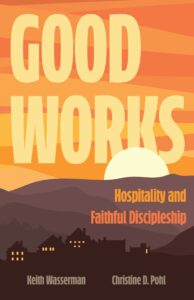 Good Works: Hospitality and Faithful Discipleship Keith Wasserman & Christian Pohl (Eerdmans) $16.99
Good Works: Hospitality and Faithful Discipleship Keith Wasserman & Christian Pohl (Eerdmans) $16.99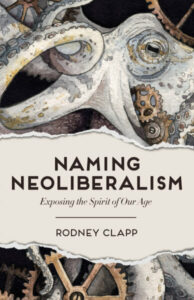 Naming Neoliberalism: Exposing the Spirit of Our Age Rodney Clapp (Fortress) $24.00 OUR SALE PRICE = $19.20
Naming Neoliberalism: Exposing the Spirit of Our Age Rodney Clapp (Fortress) $24.00 OUR SALE PRICE = $19.20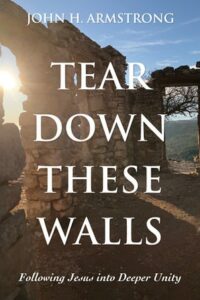 Tear Down These Walls: Following Jesus into Deeper Unity John H. Armstrong (Cascade) $23.00 OUR SALE PRICE = $18.40 DUE DATE: AUGUST 1, 2021
Tear Down These Walls: Following Jesus into Deeper Unity John H. Armstrong (Cascade) $23.00 OUR SALE PRICE = $18.40 DUE DATE: AUGUST 1, 2021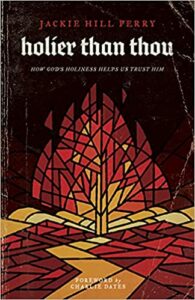 Holier Than Thou: How God’s Holiness Helps Us Trust Him Jackie Hill Perry (B+H) $17.99
Holier Than Thou: How God’s Holiness Helps Us Trust Him Jackie Hill Perry (B+H) $17.99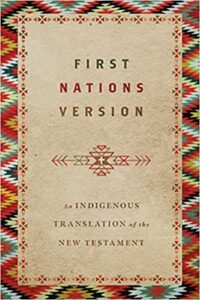 First Nations Version: An Indigenous Translation of the New Testament Terry M. Wildman, lead translator, Editor, project manager (IVP) hardback, $35.00 // paperback, $20.00,
First Nations Version: An Indigenous Translation of the New Testament Terry M. Wildman, lead translator, Editor, project manager (IVP) hardback, $35.00 // paperback, $20.00,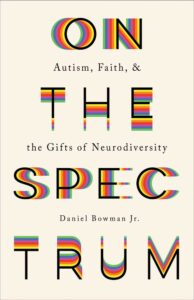 On the Spectrum: Autism, Faith, and the Gifts of Neurodiversity Daniel Bowman, Jr. (Brazos Press) $19.99
On the Spectrum: Autism, Faith, and the Gifts of Neurodiversity Daniel Bowman, Jr. (Brazos Press) $19.99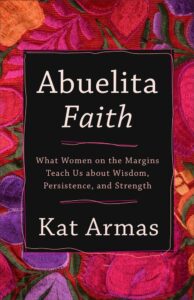 Abuelita Faith: What Women on the Margins Teach Us about Wisdom, Persistence, and Strength Kat Armas (Brazos Press) $17.99
Abuelita Faith: What Women on the Margins Teach Us about Wisdom, Persistence, and Strength Kat Armas (Brazos Press) $17.99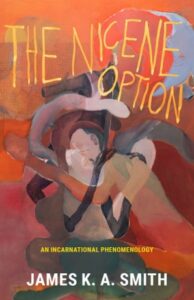 The Nicene Option: An Incarnational Phenomenology James K. A. Smith (Baylor University Press) $39.99 OUR SALE PRICE = $31.99
The Nicene Option: An Incarnational Phenomenology James K. A. Smith (Baylor University Press) $39.99 OUR SALE PRICE = $31.99 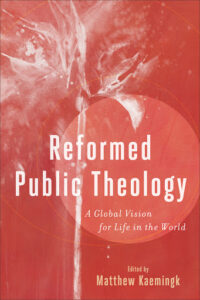 Reformed Public Theology: A Global Vision for Life in the World Matthew Kaemingk (Baker Academic) $29.99
Reformed Public Theology: A Global Vision for Life in the World Matthew Kaemingk (Baker Academic) $29.99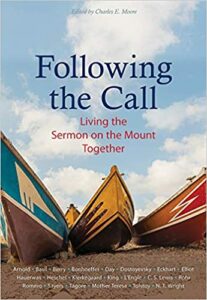 Following the Call: Living the Sermon on the Mount Together edited by Charles E. Moore (Plough Publishing) $18.00
Following the Call: Living the Sermon on the Mount Together edited by Charles E. Moore (Plough Publishing) $18.00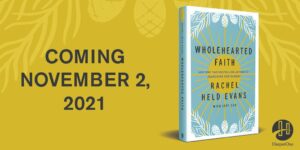 Wholehearted Faith Rachel Held Evans with Jeff Chu (HarperOne) $26.99 OUR SALE PRICE = $21.59 DUE DATE: NOVEMBER 2, 2021
Wholehearted Faith Rachel Held Evans with Jeff Chu (HarperOne) $26.99 OUR SALE PRICE = $21.59 DUE DATE: NOVEMBER 2, 2021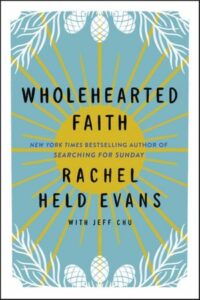 It is bittersweet to get to sell it; we know some have shed fresh tears upon learning of this final work of Held Evans. Beth and I had met Rachel a time or two and her tragic, sudden illness and death continues to make us sad. She was an important voice, naming the discontent many feel with overly strict evangelicalism and yet she remained a vibrant and even fierce supporter of creative Bible study, spiritual formation, public theology and reasonable, just, contemporary witness.
It is bittersweet to get to sell it; we know some have shed fresh tears upon learning of this final work of Held Evans. Beth and I had met Rachel a time or two and her tragic, sudden illness and death continues to make us sad. She was an important voice, naming the discontent many feel with overly strict evangelicalism and yet she remained a vibrant and even fierce supporter of creative Bible study, spiritual formation, public theology and reasonable, just, contemporary witness.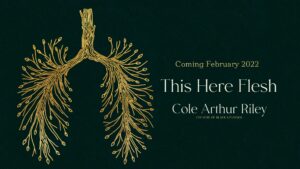 This Here Flesh: Spirituality, Liberation, and the Stories That Make Us Cole Arthur Riley (Convergent) $26.00 OUR SALE PRICE = $20.80
This Here Flesh: Spirituality, Liberation, and the Stories That Make Us Cole Arthur Riley (Convergent) $26.00 OUR SALE PRICE = $20.80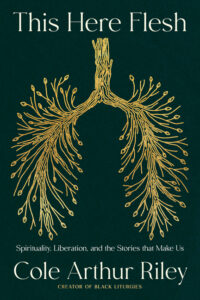 Oh my, my friends. Oh my. We don’t usually announce books this early — This Here Flesh debuts next winter (2-22-22) — but this is very, very special. I won’t say much about it here, now, as I want to do a more focused discussion of its substance and significance later as the date draws nearer (and once we see the real thing.) But since Random House, the big New York publishing house that owns Convergent has now released the cover and assigned it a bone fide place in their forthcoming 2022 catalogues, we just had to chime in and offer this opportunity for you to be among the first to know about what is going to be a very special book. And to get yourself on the growing waiting list. I wouldn’t wait to pre-order it from us if I were you, as this is going to be huge. Send us your order today!
Oh my, my friends. Oh my. We don’t usually announce books this early — This Here Flesh debuts next winter (2-22-22) — but this is very, very special. I won’t say much about it here, now, as I want to do a more focused discussion of its substance and significance later as the date draws nearer (and once we see the real thing.) But since Random House, the big New York publishing house that owns Convergent has now released the cover and assigned it a bone fide place in their forthcoming 2022 catalogues, we just had to chime in and offer this opportunity for you to be among the first to know about what is going to be a very special book. And to get yourself on the growing waiting list. I wouldn’t wait to pre-order it from us if I were you, as this is going to be huge. Send us your order today! Firstly, Cole Arthur Riley is a young black woman who has worked in various capacities in para-church campus ministry (currently at the very impressive Chesterton House at Cornell University.) We have known her for several years and have long admired her literary zeal (gotta love those lit and writing majors) and her sincere and deep evangelical faith. She is a solid and energetic thinker, an honest young follower of Jesus, and, yes, a woman increasingly finding her way as a black woman of faith in a largely white religious subculture. A black woman who knows that we all need help in finding ways to name who we are, whose we are, and what it means to live with integrity and care in these trying days. She knows something about, as the subtitle of her book puts it, “the stories that shape us.”
Firstly, Cole Arthur Riley is a young black woman who has worked in various capacities in para-church campus ministry (currently at the very impressive Chesterton House at Cornell University.) We have known her for several years and have long admired her literary zeal (gotta love those lit and writing majors) and her sincere and deep evangelical faith. She is a solid and energetic thinker, an honest young follower of Jesus, and, yes, a woman increasingly finding her way as a black woman of faith in a largely white religious subculture. A black woman who knows that we all need help in finding ways to name who we are, whose we are, and what it means to live with integrity and care in these trying days. She knows something about, as the subtitle of her book puts it, “the stories that shape us.”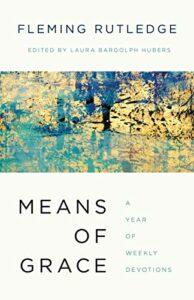 Means of Grace: A Year of Weekly Devotions Fleming Rutledge (Eerdmans) $24.99
Means of Grace: A Year of Weekly Devotions Fleming Rutledge (Eerdmans) $24.99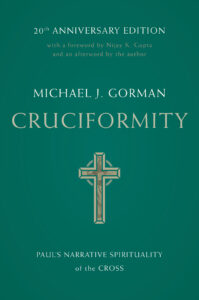 Cruciformity: Paul’s Narrative Spirituality of the Cross: 20th Anniversary Edition Michael J. Gorman (Eerdmans) $40.00
Cruciformity: Paul’s Narrative Spirituality of the Cross: 20th Anniversary Edition Michael J. Gorman (Eerdmans) $40.00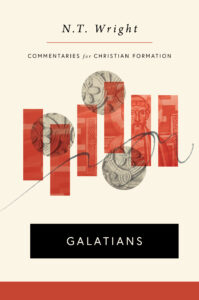 Commentaries for Christian Formation: Galatians N.T. Wright (Eerdmans) $39.99
Commentaries for Christian Formation: Galatians N.T. Wright (Eerdmans) $39.99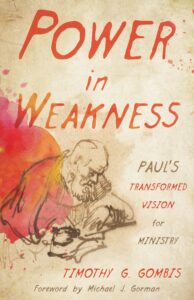 Power in Weakness: Paul’s Transformed Vision for Ministry Timothy G. Gombis (Eerdmans) $25.00
Power in Weakness: Paul’s Transformed Vision for Ministry Timothy G. Gombis (Eerdmans) $25.00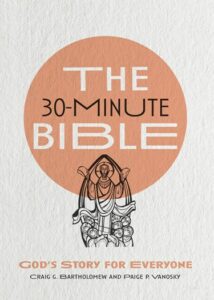 The 30-Minute Bible: God’s Story for Everyone Craig Bartholomew & Paige P. Vanoksy (IVP) $17.00
The 30-Minute Bible: God’s Story for Everyone Craig Bartholomew & Paige P. Vanoksy (IVP) $17.00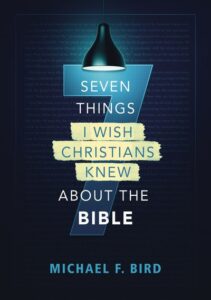
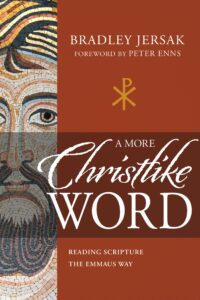 A More Christlike Word: Reading Scripture in the Emmaus Way Bradley Jersak (Whittaker House) $19.99
A More Christlike Word: Reading Scripture in the Emmaus Way Bradley Jersak (Whittaker House) $19.99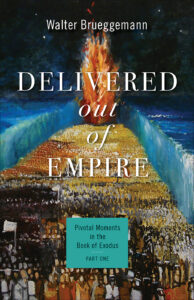 Delivered Out of Empire: Pivotal Moments in the Book of Exodus (Part One) Walter Brueggemann (WJK) $15.00 OUR SALE PRICE = $12.00
Delivered Out of Empire: Pivotal Moments in the Book of Exodus (Part One) Walter Brueggemann (WJK) $15.00 OUR SALE PRICE = $12.00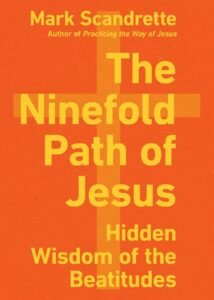 The Ninefold Path of Jesus: Hidden Wisdom of the Beatitudes Mark Scandrette (VP) $16.00
The Ninefold Path of Jesus: Hidden Wisdom of the Beatitudes Mark Scandrette (VP) $16.00 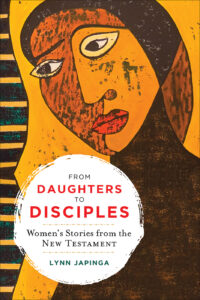 From Daughters to Disciples: Woman’s Stories from the New Testament Lynn Japinga (WJK) $18.00
From Daughters to Disciples: Woman’s Stories from the New Testament Lynn Japinga (WJK) $18.00  Out of that work and care for congregational life, it seems, two other books came. These are designed for ordinary readers and are ideal for adult Sunday school classes, Bible studies, book clubs, or small groups. From Daughters to Disciples: Woman’s Stories from the New Testament is new but in 2020 we saw the release by Japinga of From Widows to Warriors: Women’s Stories from the Old Testament. Both volumes include stories known and beloved and some harder texts to ponder. (The Old Testament one is, understandably, a bit longer, btw.) They both allow us to (as Beth Tanner of New Brunswick Theological Seminary put it) “feel a connection with our ancient sisters; their acts of bravery and dedication remind us that our Christian call is to do the same.”
Out of that work and care for congregational life, it seems, two other books came. These are designed for ordinary readers and are ideal for adult Sunday school classes, Bible studies, book clubs, or small groups. From Daughters to Disciples: Woman’s Stories from the New Testament is new but in 2020 we saw the release by Japinga of From Widows to Warriors: Women’s Stories from the Old Testament. Both volumes include stories known and beloved and some harder texts to ponder. (The Old Testament one is, understandably, a bit longer, btw.) They both allow us to (as Beth Tanner of New Brunswick Theological Seminary put it) “feel a connection with our ancient sisters; their acts of bravery and dedication remind us that our Christian call is to do the same.”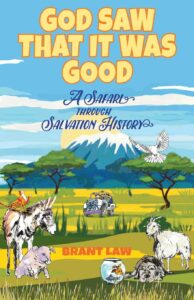 God Saw That It Was Good: A Safari Through Salvation History Brant Law (Paraclete Press) $16.99 OUR SALE PRICE = $13.59
God Saw That It Was Good: A Safari Through Salvation History Brant Law (Paraclete Press) $16.99 OUR SALE PRICE = $13.59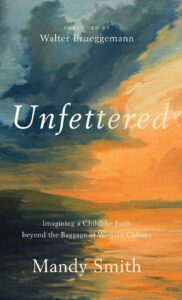 Unfettered: Imagining a Childlike Faith Beyond the Baggage of Western Culture. Mandy Smith (Brazos Press) $18.99 OUR SALE PRICE = $15.19
Unfettered: Imagining a Childlike Faith Beyond the Baggage of Western Culture. Mandy Smith (Brazos Press) $18.99 OUR SALE PRICE = $15.19 Mandy, though, is not. She is learning. And (forgive me, but I’ve been waiting decades to use this line properly in a book review) I’d say she can sing with the ever-allusive Bob Dylan, “I was so much older then, I’m younger than that now.” And she is inviting us into the story of how that happened.
Mandy, though, is not. She is learning. And (forgive me, but I’ve been waiting decades to use this line properly in a book review) I’d say she can sing with the ever-allusive Bob Dylan, “I was so much older then, I’m younger than that now.” And she is inviting us into the story of how that happened.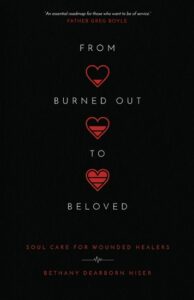 From Burned Out to Beloved: Soul Care for Wounded Healers Bethany Dearborn Hiser (IVP) $18.00. OUR SALE PRICE = $14.40
From Burned Out to Beloved: Soul Care for Wounded Healers Bethany Dearborn Hiser (IVP) $18.00. OUR SALE PRICE = $14.40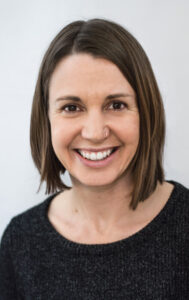 Secondly, besides this author’s wisdom learned the hard way and her vulnerability in sharing her complicated story is how she is so very practical about guiding us toward the plan for recovery. The book includes some soul-work that grapples with questions of our being truly beloved, that we do not have to earn or deserve God’s love and that in Christ we are truly forgiven, restored, made new. She has this theological stuff in her evangelical heart, of course, but needed a deeper journey with spiritual directors and contemplative guides to help learn that more profound understanding in her bones of who she was in Christ and how spiritual practices can help re-shaped our deformed ways.
Secondly, besides this author’s wisdom learned the hard way and her vulnerability in sharing her complicated story is how she is so very practical about guiding us toward the plan for recovery. The book includes some soul-work that grapples with questions of our being truly beloved, that we do not have to earn or deserve God’s love and that in Christ we are truly forgiven, restored, made new. She has this theological stuff in her evangelical heart, of course, but needed a deeper journey with spiritual directors and contemplative guides to help learn that more profound understanding in her bones of who she was in Christ and how spiritual practices can help re-shaped our deformed ways.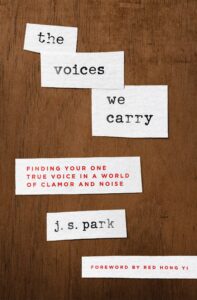 The Voices We Carry: Finding Your One True Voice in a World of Clamor and Noise J. S. Park (Northfield/Moody Press) $14.99 OUR SALE PRICE = $11.99
The Voices We Carry: Finding Your One True Voice in a World of Clamor and Noise J. S. Park (Northfield/Moody Press) $14.99 OUR SALE PRICE = $11.99 J.S. Park has quite a story. He starts the book explaining that he is a hospital chaplain and will be sharing small bits of hard conversations he often has with patients. Facing critical lifestyle changes or even death, they pour out what they think and believe, often about themselves, often regurgitating stories hammered into their hurting hearts, perhaps from their youth. And within pages, I was hooked. (Okay, he had me at the wonderful Frederick Buechner epigram that starts the chapter.)
J.S. Park has quite a story. He starts the book explaining that he is a hospital chaplain and will be sharing small bits of hard conversations he often has with patients. Facing critical lifestyle changes or even death, they pour out what they think and believe, often about themselves, often regurgitating stories hammered into their hurting hearts, perhaps from their youth. And within pages, I was hooked. (Okay, he had me at the wonderful Frederick Buechner epigram that starts the chapter.)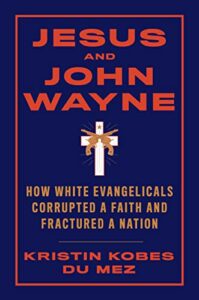 Jesus and John Wayne: How White Evangelicals Corrupted a Faith and Fractured a Nation Kristin Kobes Du Mez (Liveright) hardback, $28.95 – OUR SALE PRICE = $23.16
Jesus and John Wayne: How White Evangelicals Corrupted a Faith and Fractured a Nation Kristin Kobes Du Mez (Liveright) hardback, $28.95 – OUR SALE PRICE = $23.16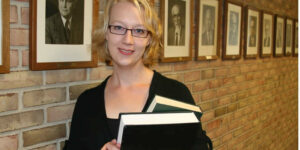 And, as she says in the important new preface in the paperback, her inbox has been flooded with hundreds of emails saying this is the story of my life. From her historian’s look at Teddy Roosevelt’s ruggedly masculine ethos to Wild at Heart citing the rough rider as some kind of model for discipleship to the exceedingly painful times of 2020 into early 2021 (the murder of George Floyd, President Trump’s people and their brazen uprising in the capitol) Du Mez connects the dots to illuminate, as we say nowadays, our cultural moment.
And, as she says in the important new preface in the paperback, her inbox has been flooded with hundreds of emails saying this is the story of my life. From her historian’s look at Teddy Roosevelt’s ruggedly masculine ethos to Wild at Heart citing the rough rider as some kind of model for discipleship to the exceedingly painful times of 2020 into early 2021 (the murder of George Floyd, President Trump’s people and their brazen uprising in the capitol) Du Mez connects the dots to illuminate, as we say nowadays, our cultural moment.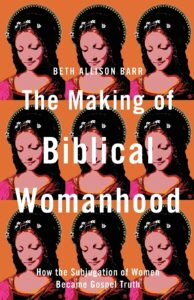 The Making of Biblical Womanhood: How the Subjugation of Woman Became Gospel Truth Beth Allison Barr (Brazos Press) $19.99 OUR SALE PRICE = $15.99
The Making of Biblical Womanhood: How the Subjugation of Woman Became Gospel Truth Beth Allison Barr (Brazos Press) $19.99 OUR SALE PRICE = $15.99 Professor Du Mez is right about Barr’s The Making of Biblical Womanhood. It is fervent and bold and, for those with ears to hear, very, very compelling. Dr. Barr is a clear and passionate writer whether she is telling her own story as a longstanding Southern Baptist Convention (SBC) wife of a youth pastor, driven from her beloved local congregation over her (and her husbands) honesty about their egalitarian convictions or her work in the academy as a respected medievalist. She can tell a convincing tale about the machinations of a local evangelical/fundamentalist church as well as she can inspire us with stories of empowered 12th century nuns who taught Scripture or late Middle Ages pastors whose wedding sermons (in Latin, of course) say little about gender roles (as do those pushing for so-called “Biblical” womanhood) but invite men and women to mutual submission as they both honor Christ alone.
Professor Du Mez is right about Barr’s The Making of Biblical Womanhood. It is fervent and bold and, for those with ears to hear, very, very compelling. Dr. Barr is a clear and passionate writer whether she is telling her own story as a longstanding Southern Baptist Convention (SBC) wife of a youth pastor, driven from her beloved local congregation over her (and her husbands) honesty about their egalitarian convictions or her work in the academy as a respected medievalist. She can tell a convincing tale about the machinations of a local evangelical/fundamentalist church as well as she can inspire us with stories of empowered 12th century nuns who taught Scripture or late Middle Ages pastors whose wedding sermons (in Latin, of course) say little about gender roles (as do those pushing for so-called “Biblical” womanhood) but invite men and women to mutual submission as they both honor Christ alone.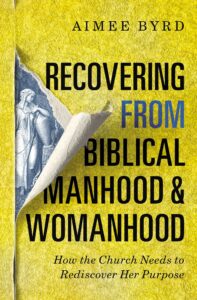 Recovering From Biblical Manhood & Womanhood: How the Church Needs to Rediscover Her Purpose Aimee Byrd (Zondervan) $18.99 OUR SALE PRICE = $15.19
Recovering From Biblical Manhood & Womanhood: How the Church Needs to Rediscover Her Purpose Aimee Byrd (Zondervan) $18.99 OUR SALE PRICE = $15.19 So, Ms Byrd does not fit the caricature of a progressive Christian feminist. She does not call herself that (and doesn’t cite the usual suspects in that tradition.) She is a conventional Bible scholar and well trained, even conservatively, theologically speaking. She’s the kind of person who sent out a tweet happily showing off her purchase of the recent biography of Herman Bavinck by James Eglinton. She cares about finely tuned theology so much that she had to be the one to call out members of the CBMW for complicity in supporting goofy heresy about an alleged hierarchy of subjugation within the Trinity. You see, recovering from “Biblical womanhood” or not, she is honest before Scripture, loyal to the God of the Bible revealed in Christ and honors the great creedal tradition of Nicene Christian conviction and classic Protestant theology.
So, Ms Byrd does not fit the caricature of a progressive Christian feminist. She does not call herself that (and doesn’t cite the usual suspects in that tradition.) She is a conventional Bible scholar and well trained, even conservatively, theologically speaking. She’s the kind of person who sent out a tweet happily showing off her purchase of the recent biography of Herman Bavinck by James Eglinton. She cares about finely tuned theology so much that she had to be the one to call out members of the CBMW for complicity in supporting goofy heresy about an alleged hierarchy of subjugation within the Trinity. You see, recovering from “Biblical womanhood” or not, she is honest before Scripture, loyal to the God of the Bible revealed in Christ and honors the great creedal tradition of Nicene Christian conviction and classic Protestant theology.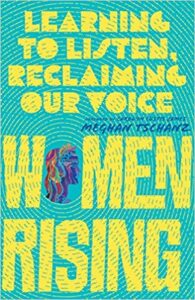 Women Rising: Learning to Listen, Reclaiming Our Voice Meghan Tschanz (IVP) $17.00 OUR SALE PRICE = $13.60
Women Rising: Learning to Listen, Reclaiming Our Voice Meghan Tschanz (IVP) $17.00 OUR SALE PRICE = $13.60 Tschanz sounds very much like many admirable young women I know, women who caught a vision in their college years about making a difference, who through careful reading and some short term mission trips and study abroad experiences came to care about some of the most important things we can care about in this broken world. She joins with others, affiliates with a bold mission that serves the poor, and, soon enough, grew to be engaged with anti-trafficking work. Meghan’s often exciting story (leavened with the light details of friendships and packing and parents and dating and the mundane routines of prepping for mission work) unfolds chapter by chapter as she deepens her awareness and learns how to listen to women in developing countries.
Tschanz sounds very much like many admirable young women I know, women who caught a vision in their college years about making a difference, who through careful reading and some short term mission trips and study abroad experiences came to care about some of the most important things we can care about in this broken world. She joins with others, affiliates with a bold mission that serves the poor, and, soon enough, grew to be engaged with anti-trafficking work. Meghan’s often exciting story (leavened with the light details of friendships and packing and parents and dating and the mundane routines of prepping for mission work) unfolds chapter by chapter as she deepens her awareness and learns how to listen to women in developing countries. We’re sending out this quick BookNotes newsletter not with any brand new titles or big sales, but with a great invitation for you to join, if your schedule permits, an online conversation tomorrow, Friday, May 21st at 1:30 ET.
We’re sending out this quick BookNotes newsletter not with any brand new titles or big sales, but with a great invitation for you to join, if your schedule permits, an online conversation tomorrow, Friday, May 21st at 1:30 ET.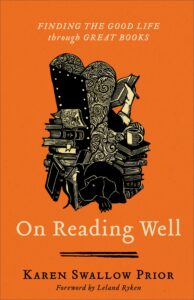 Do any of you recall when we had Karen Swallow Prior at our Hearts & Mind shop in Dallastown talking about her then brand new book On Reading Well: Finding the Good Life by Reading Great Books? What a fun and edifying evening it was. She was still hurting from her severe accident – her parents drove her here from Virginia, a charming bit of somewhat famous author book tour trivia that might win you some points in some circles but which struck us as wonderfully generous. She was great, and I was nervous with the crowd and her prestige and, to be honest, wanting to make sure the event wasn’t too weighed down with seriousness. We had an impressive display of all the classic books mentioned in On Reading Well. Some folks were there who do not naturally gravitate to the Great Books (let alone Christian reflections on Aristotelian virtue ethics) and we wanted the evening to make sense to all. It’s a fine line for me to be my goofy self, try to offer some authentic dignity to a dignified guest, and yet keep the event upbeat and light.
Do any of you recall when we had Karen Swallow Prior at our Hearts & Mind shop in Dallastown talking about her then brand new book On Reading Well: Finding the Good Life by Reading Great Books? What a fun and edifying evening it was. She was still hurting from her severe accident – her parents drove her here from Virginia, a charming bit of somewhat famous author book tour trivia that might win you some points in some circles but which struck us as wonderfully generous. She was great, and I was nervous with the crowd and her prestige and, to be honest, wanting to make sure the event wasn’t too weighed down with seriousness. We had an impressive display of all the classic books mentioned in On Reading Well. Some folks were there who do not naturally gravitate to the Great Books (let alone Christian reflections on Aristotelian virtue ethics) and we wanted the evening to make sense to all. It’s a fine line for me to be my goofy self, try to offer some authentic dignity to a dignified guest, and yet keep the event upbeat and light.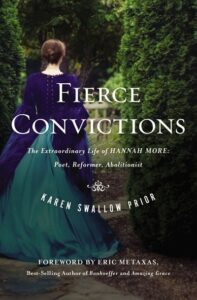 Karen was marvelous to chat with and a great teacher, presenter, interviewee. She read from the book, took questions, and we all gushed. I reminded folks of her marvelous first memoir – Booked: Literature in the Soul of Me (T.S. Poetry Press; $14.99) – and her very interesting and I think important work on the writer and abolitionist Hannah More, Fierce Convictions: The Extraordinary Life of Hannah More: Poet, Reformer, Abolitionist (Thomas Nelson; $24.99.) She was one of the playwrights and poets who worked with William Wilbefroce and the Clapham sect, using the arts and literature to help reform the moral imaginations of the people so that actual legislative change to end slavery might actually stand a chance.
Karen was marvelous to chat with and a great teacher, presenter, interviewee. She read from the book, took questions, and we all gushed. I reminded folks of her marvelous first memoir – Booked: Literature in the Soul of Me (T.S. Poetry Press; $14.99) – and her very interesting and I think important work on the writer and abolitionist Hannah More, Fierce Convictions: The Extraordinary Life of Hannah More: Poet, Reformer, Abolitionist (Thomas Nelson; $24.99.) She was one of the playwrights and poets who worked with William Wilbefroce and the Clapham sect, using the arts and literature to help reform the moral imaginations of the people so that actual legislative change to end slavery might actually stand a chance.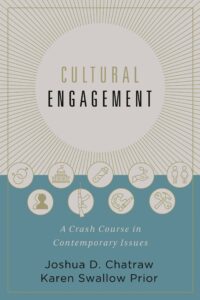 In more recent years Dr. Prior has collaborated with Joshua D. Chatraw to edite a volume called Cultural Engagement: A Crash Course in Contemporary Issues (Zondervan Academic; $29.99) which I liked very much (and
In more recent years Dr. Prior has collaborated with Joshua D. Chatraw to edite a volume called Cultural Engagement: A Crash Course in Contemporary Issues (Zondervan Academic; $29.99) which I liked very much (and 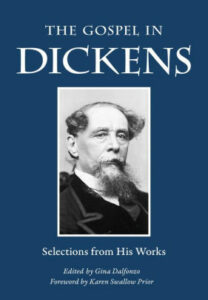 Some of you may recall that I had the privilege of hosting another conversation with Karen Prior – this time on facebook live, presented by the good folks at
Some of you may recall that I had the privilege of hosting another conversation with Karen Prior – this time on facebook live, presented by the good folks at 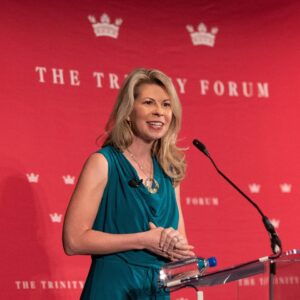 Their usual host of their Forums is the very sharp, delightfully eloquent, always charming, Cherie Harder. To hear her interview scholars, writers, public intellectuals, artists, and theologians is always a great blessing, and to watch her offer intellectual hospitality to so many is breathtaking to me.
Their usual host of their Forums is the very sharp, delightfully eloquent, always charming, Cherie Harder. To hear her interview scholars, writers, public intellectuals, artists, and theologians is always a great blessing, and to watch her offer intellectual hospitality to so many is breathtaking to me.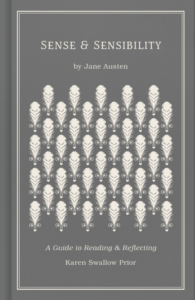
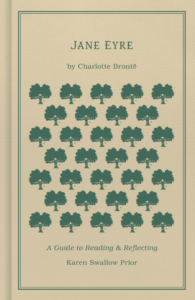
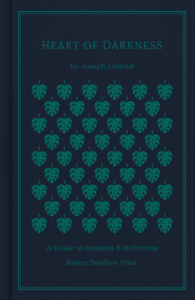
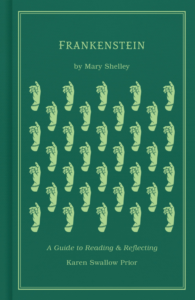
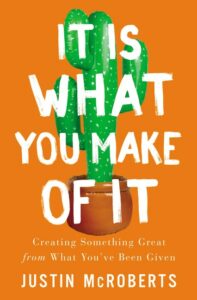 It Is What You Make of It: Creating Something Great from What You’ve Been Given Justin McRoberts (Thomas Nelson) $18.99 OUR SALE PRICE = $15.19 RELEASE DATE: JUNE 1, 2021
It Is What You Make of It: Creating Something Great from What You’ve Been Given Justin McRoberts (Thomas Nelson) $18.99 OUR SALE PRICE = $15.19 RELEASE DATE: JUNE 1, 2021 As an old Young Life guy will do, he riffs on gospel stories, and he does it well. He weaves insights from aesthetics and design principles to hard-learned life lessons to Bible stories and back again to help readers process this call to make something of whatever life hands us. To be real and to be better, with others.
As an old Young Life guy will do, he riffs on gospel stories, and he does it well. He weaves insights from aesthetics and design principles to hard-learned life lessons to Bible stories and back again to help readers process this call to make something of whatever life hands us. To be real and to be better, with others.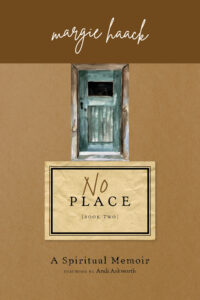 No Place: A Memoir Margie Haack (Square Halo Books) $24.99 OUR SALE PRICE = $19.99 RELEASE DATE: MID-JUNE 2021
No Place: A Memoir Margie Haack (Square Halo Books) $24.99 OUR SALE PRICE = $19.99 RELEASE DATE: MID-JUNE 2021 No Place is one of the very favorite books I’ve read this past year and we cannot wait to share it, selling it here on line and telling others about it. I have to wonder, as I sometimes do, if I would have liked this book had I not known anything about Margie and her husband, Denis, who figures prominently in No Place. It chronicles, after all, much of their meeting and dating and early-married life, so my friendship with and deep admiration of the two of them colors why I wanted to read this delightful part of their backstory and why I cared so much about it. But here is my hope: even if you never read The Exact Place or do not know anything about their ongoing ministry as the curators of Critique journal and her Notes From Toad Hall now called “Coffee…”) newsletters, and their drop in center of a home that was the closest thing the US had to a L’Abri that wasn’t an official L’Abri, even then, you will not be able to put this story down.
No Place is one of the very favorite books I’ve read this past year and we cannot wait to share it, selling it here on line and telling others about it. I have to wonder, as I sometimes do, if I would have liked this book had I not known anything about Margie and her husband, Denis, who figures prominently in No Place. It chronicles, after all, much of their meeting and dating and early-married life, so my friendship with and deep admiration of the two of them colors why I wanted to read this delightful part of their backstory and why I cared so much about it. But here is my hope: even if you never read The Exact Place or do not know anything about their ongoing ministry as the curators of Critique journal and her Notes From Toad Hall now called “Coffee…”) newsletters, and their drop in center of a home that was the closest thing the US had to a L’Abri that wasn’t an official L’Abri, even then, you will not be able to put this story down.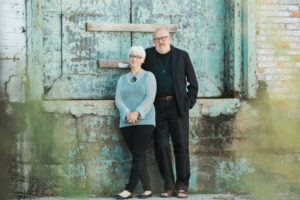 Two or three things for now. First, she is very honest about their lovely (if at times painful) early years of marriage that was sweet in the telling even if it was difficult. I’m not sure if most couples have this kind of drama but many do, and without sounding clichéd, she shares their quotidian misunderstandings and slights. As a few early reviewers noted, readers will be glad for this candor, helping us all realize we are not alone in our marital stress and our less than glorious relationships. Coming of age in the late 1960s in the context of (get this!) both the hippy counterculture and the fundamentalist Christian subculture put their worldviews in considerable tension. And it made their marriage complicated, especially as Denis and she came from considerably different backgrounds. This hard love story is beautiful to behold and it was a nice part of the story.
Two or three things for now. First, she is very honest about their lovely (if at times painful) early years of marriage that was sweet in the telling even if it was difficult. I’m not sure if most couples have this kind of drama but many do, and without sounding clichéd, she shares their quotidian misunderstandings and slights. As a few early reviewers noted, readers will be glad for this candor, helping us all realize we are not alone in our marital stress and our less than glorious relationships. Coming of age in the late 1960s in the context of (get this!) both the hippy counterculture and the fundamentalist Christian subculture put their worldviews in considerable tension. And it made their marriage complicated, especially as Denis and she came from considerably different backgrounds. This hard love story is beautiful to behold and it was a nice part of the story.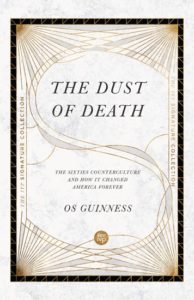 (I have to insert here – and Margie would approve – that a part of their story includes discovering, eventually, the writings of Francis & Edith Schaeffer, who combined a cultural awareness of the times and heart for the disillusioned youth of the counter culture. Two of the books that were very important to them in those years were recently re-issued by IVP in their “Signature Classics Collection” series, namely, Schaeffer’s The God Who Is There (with a new foreword by the Haack’s very good friend, Steve Garber) and, with a long blurb on the inside by yours truly, Os Guinness’s The Dust of Death: The Sixties Counterculture and How It Changed America Forever.)
(I have to insert here – and Margie would approve – that a part of their story includes discovering, eventually, the writings of Francis & Edith Schaeffer, who combined a cultural awareness of the times and heart for the disillusioned youth of the counter culture. Two of the books that were very important to them in those years were recently re-issued by IVP in their “Signature Classics Collection” series, namely, Schaeffer’s The God Who Is There (with a new foreword by the Haack’s very good friend, Steve Garber) and, with a long blurb on the inside by yours truly, Os Guinness’s The Dust of Death: The Sixties Counterculture and How It Changed America Forever.) He Saw That It Was Good: Reimagining Your Creative Life to Repair a Broken World Sho Baraka (Waterbrook Press) $22.00 OUR SALE PRICE = $17.60 RELEASE DATE: May 18, 2021
He Saw That It Was Good: Reimagining Your Creative Life to Repair a Broken World Sho Baraka (Waterbrook Press) $22.00 OUR SALE PRICE = $17.60 RELEASE DATE: May 18, 2021 Truth and Absalom Jones. This should assure us that this is a solid, mature book – if witty and upbeat – which offers historic principles from social movements that will help us cultivate our own creative callings, no matter what we do. This book, as the back cover puts it, will help you “return to your biggest and truest story.” Your life (and your world) need never be the same.
Truth and Absalom Jones. This should assure us that this is a solid, mature book – if witty and upbeat – which offers historic principles from social movements that will help us cultivate our own creative callings, no matter what we do. This book, as the back cover puts it, will help you “return to your biggest and truest story.” Your life (and your world) need never be the same.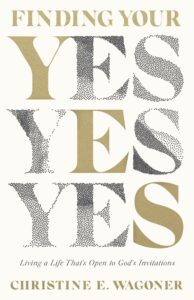 Finding Your Yes: Living a Life That’s Open to God’s Invitations Christine Wagoner (IVP) $16.00 OUR SALE PRICE = $12.80 RELEASE DATE: May 18, 2021
Finding Your Yes: Living a Life That’s Open to God’s Invitations Christine Wagoner (IVP) $16.00 OUR SALE PRICE = $12.80 RELEASE DATE: May 18, 2021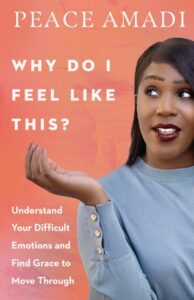 Why Do I Feel Like This? Understand Your Difficult Emotions and Find Grace to Move Through Amandi Peace (IVP) $18.00 OUR SALE PRICE = $14.40 RELEASE DATE: MAY 25, 2021
Why Do I Feel Like This? Understand Your Difficult Emotions and Find Grace to Move Through Amandi Peace (IVP) $18.00 OUR SALE PRICE = $14.40 RELEASE DATE: MAY 25, 2021 Terraform: Building a Better World Propaganda (HarperOne) $24.99 OUR SALE PRICE = $19.99 RELEASE DATE: June 8, 2021
Terraform: Building a Better World Propaganda (HarperOne) $24.99 OUR SALE PRICE = $19.99 RELEASE DATE: June 8, 2021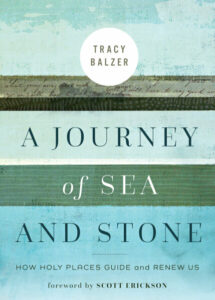 A Journey of Sea and Stone: How Holy Places Guide and Renew Us Tracy Balzer with a forward by Scott Erickson (Broadleaf Books) $16.99 OUR SALE PRICE = $13.59 RELEASE DATE: JUNE 8, 2021
A Journey of Sea and Stone: How Holy Places Guide and Renew Us Tracy Balzer with a forward by Scott Erickson (Broadleaf Books) $16.99 OUR SALE PRICE = $13.59 RELEASE DATE: JUNE 8, 2021 The forthcoming Weight of Memory is his best yet. Some of the lines are just stunning as he turns a phrase or offers a metaphor. We hope to feature him here at the store this summer – maybe a backyard book launch, Lord willing– I would love to hear him read some of this out loud. He and his wife, Maile Silva, (who do a fabulous podcast together about the creative life, being parents and spouses and writers, cleverly called “The Stories Between Us”) are tremendously fun and kind people and having them here would be our great honor. More than a year ago we had hoped for a book launching event for These Nameless Things but Covid but the brakes on that.
The forthcoming Weight of Memory is his best yet. Some of the lines are just stunning as he turns a phrase or offers a metaphor. We hope to feature him here at the store this summer – maybe a backyard book launch, Lord willing– I would love to hear him read some of this out loud. He and his wife, Maile Silva, (who do a fabulous podcast together about the creative life, being parents and spouses and writers, cleverly called “The Stories Between Us”) are tremendously fun and kind people and having them here would be our great honor. More than a year ago we had hoped for a book launching event for These Nameless Things but Covid but the brakes on that.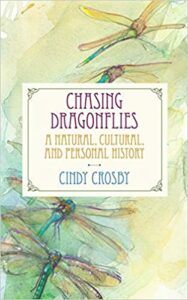 Chasing Dragonflies: A Natural, Cultural and Personal History Cindy Crosby, illustrated by Peggy Macnamara (Northwestern University press) $24.95 OUR SALE PRICE = $19.96
Chasing Dragonflies: A Natural, Cultural and Personal History Cindy Crosby, illustrated by Peggy Macnamara (Northwestern University press) $24.95 OUR SALE PRICE = $19.96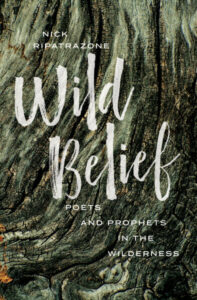 Wild Belief: Poets and Prophets in the Wilderness Nick Ripatrazone (Broadleaf Books) $25.99 OUR SALE PRICE = $20.79
Wild Belief: Poets and Prophets in the Wilderness Nick Ripatrazone (Broadleaf Books) $25.99 OUR SALE PRICE = $20.79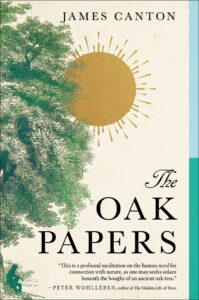 The Oak Papers James Canton (HarperOne) $27.99 OUR SALE PRICE = $19.99
The Oak Papers James Canton (HarperOne) $27.99 OUR SALE PRICE = $19.99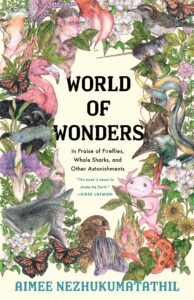 World of Wonders: In Praise of Fireflies, Whale Sharks, and Other Astonishments Aimee Nezhukumatathil (Milkweed Editions) $25.00 OUR SALE PRICE = $20.00
World of Wonders: In Praise of Fireflies, Whale Sharks, and Other Astonishments Aimee Nezhukumatathil (Milkweed Editions) $25.00 OUR SALE PRICE = $20.00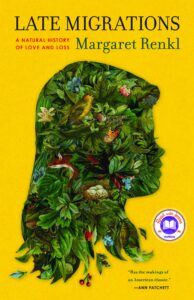 Late Migrations: A Natural History of Love and Loss Margaret Renkl (Milkweed Editions) $16.00 OUR SALE PRICE = $12.80
Late Migrations: A Natural History of Love and Loss Margaret Renkl (Milkweed Editions) $16.00 OUR SALE PRICE = $12.80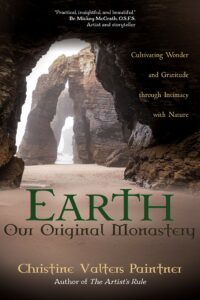 Earth Our Original Monastery: Cultivating Wonder and Gratitude through Intimacy with Nature Christine Valters Paintner (Sorin Books) $15.95 OUR SALE PRICE = $12.76
Earth Our Original Monastery: Cultivating Wonder and Gratitude through Intimacy with Nature Christine Valters Paintner (Sorin Books) $15.95 OUR SALE PRICE = $12.76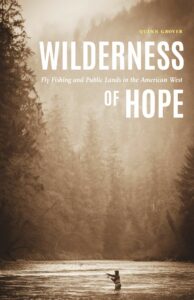 Wilderness of Hope: Fly Fishing and Pubic Lands in the American West Quinn Grover (Bison Books/University of Nebraska Press) $26.95 OUR SALE PRICE = $21.56
Wilderness of Hope: Fly Fishing and Pubic Lands in the American West Quinn Grover (Bison Books/University of Nebraska Press) $26.95 OUR SALE PRICE = $21.56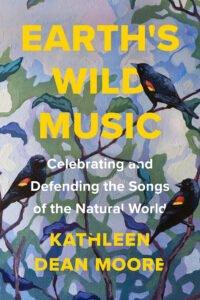 Earth’s Wild Music: Celebrating and Defending the Songs of the Natural World Kathleen Dean Moore (Counterpoint Press) $26.00 OUR SALE PRICE = $20.80
Earth’s Wild Music: Celebrating and Defending the Songs of the Natural World Kathleen Dean Moore (Counterpoint Press) $26.00 OUR SALE PRICE = $20.80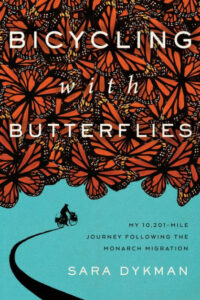 Bicycling with Butterflies: My 10,201-Mile Journey Following the Monarch Migration Sara Dykman (Timber Press) $27.95 OUR SALE PRICE = $22.36
Bicycling with Butterflies: My 10,201-Mile Journey Following the Monarch Migration Sara Dykman (Timber Press) $27.95 OUR SALE PRICE = $22.36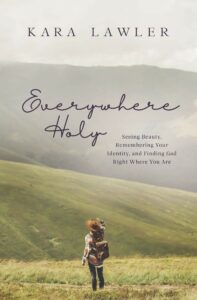 Everywhere Holy: Seeing Beauty, Remembering Your Identity, and Finding God Right Where You Are Kara Lawler (Thomas Nelson) $17.99 OUR SALE PRICE = $14.39
Everywhere Holy: Seeing Beauty, Remembering Your Identity, and Finding God Right Where You Are Kara Lawler (Thomas Nelson) $17.99 OUR SALE PRICE = $14.39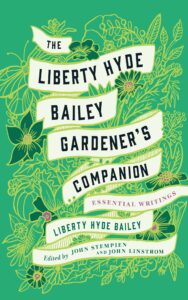 The Liberty Hyde Bailey Gardener’s Companion: Essential Writings Liberty Hyde Bailey, edited by John A. Stempien & John Linstrom (Cornell University Press) $26.95 OUR SALE PRICE = $21.56
The Liberty Hyde Bailey Gardener’s Companion: Essential Writings Liberty Hyde Bailey, edited by John A. Stempien & John Linstrom (Cornell University Press) $26.95 OUR SALE PRICE = $21.56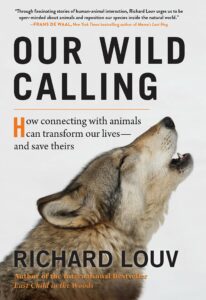 Our Wild Calling: How Connecting with Animals Can Transform Our Lives – and Save Theirs Richard Louv (Algonquin Books of Chapel Hill) $27.95 OUR SALE PRICE = $22.36
Our Wild Calling: How Connecting with Animals Can Transform Our Lives – and Save Theirs Richard Louv (Algonquin Books of Chapel Hill) $27.95 OUR SALE PRICE = $22.36 Wild + Free Nature: 25 Outdoor Adventures for Kids to Explore, Discover, and Awaken Their Curiosity Ainsley Arment (HarperOne) $22.99 OUR SALE PRICE = $18.39
Wild + Free Nature: 25 Outdoor Adventures for Kids to Explore, Discover, and Awaken Their Curiosity Ainsley Arment (HarperOne) $22.99 OUR SALE PRICE = $18.39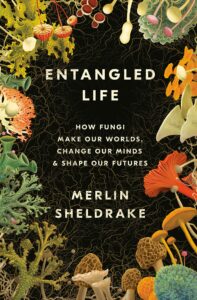 Entangled Life: How Fungi Make Our Worlds, Change Our Minds & Shape Our Futures Merlin Sheldrake (Random House) $18.00 OUR SALE PRICE = $14.40
Entangled Life: How Fungi Make Our Worlds, Change Our Minds & Shape Our Futures Merlin Sheldrake (Random House) $18.00 OUR SALE PRICE = $14.40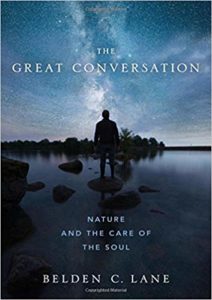 Belden C. Lane (Oxford University Press) $29.95 OUR SALE PRICE = $23.96
Belden C. Lane (Oxford University Press) $29.95 OUR SALE PRICE = $23.96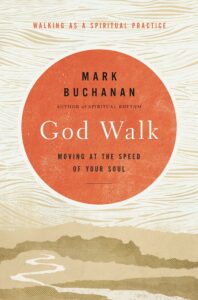
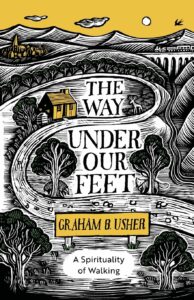 The Way Under Our Feet: A Spirituality of Walking Graham B. Usher (SPCK) $18.00 OUR SALE PRICE = $14.40
The Way Under Our Feet: A Spirituality of Walking Graham B. Usher (SPCK) $18.00 OUR SALE PRICE = $14.40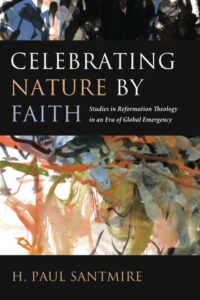 To these sorts of books I’ll now add the recent and very valuable Celebrating Nature by Faith: Studies in Reformation Theology in an Era of Global Emergency by H. Paul Santmire (Cascade) $25.00 OUR SALE PRICE + $20.00
To these sorts of books I’ll now add the recent and very valuable Celebrating Nature by Faith: Studies in Reformation Theology in an Era of Global Emergency by H. Paul Santmire (Cascade) $25.00 OUR SALE PRICE + $20.00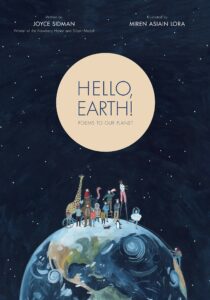 And then, there is this, one of may great children’s resources we might suggest. Hello Earth! Poems to our Planet is written by Joyce Sidman and illlustrated by Niren Asiaian Lorda (Eerdmans Books for Young Readers) $18.99 OUR SALE PRICE = $15.19
And then, there is this, one of may great children’s resources we might suggest. Hello Earth! Poems to our Planet is written by Joyce Sidman and illlustrated by Niren Asiaian Lorda (Eerdmans Books for Young Readers) $18.99 OUR SALE PRICE = $15.19